Fat Burning Diet Lifestyle
No single food will automatically target those areas on your body that you might not be the happiest with. Fat loss only happens when you burn more calories than you ingest, leading your body to preferentially break down lipid stores for energy. But alongside a proper fitness regimen, what fat burning foods you eat will help you torch body fat.
Whether it's turning off fat genes, helping to build muscle that robs energy from adipose cells, revving your metabolism and ability to burn fat, or helping you feel fuller longer so you consume fewer calories, these foods have been proven to show an increased rate of fat loss. So stop these bad habits that give you belly fat, and instead, incorporate these healthy fat burning foods into your diet to whittle your waist and bring your midriff back in line.
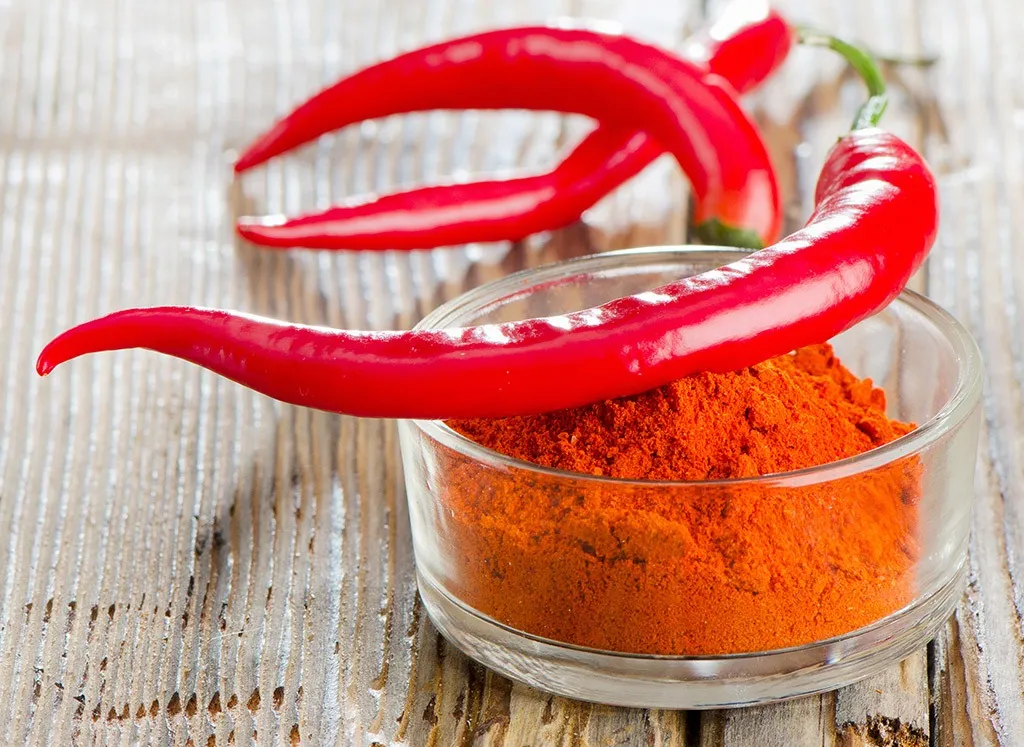
Who knew there was a connection between a spicy pepper scorching your mouth and burning your belly fat? Scientists did! According to a study in the American Journal of Clinical Nutrition, daily consumption of one of the compounds found in pepper (capsaicin) speeds up abdominal fat loss by boosting the body's ability to convert food into energy. It also acts as a natural appetite suppressant: men who ate spicy appetizers consumed 200 fewer calories at later meals than those that did not, a study by Canadian researchers found. All you have to do to reap the benefits is use a pinch of cayenne pepper to season grilled fish, meats, and eggs.
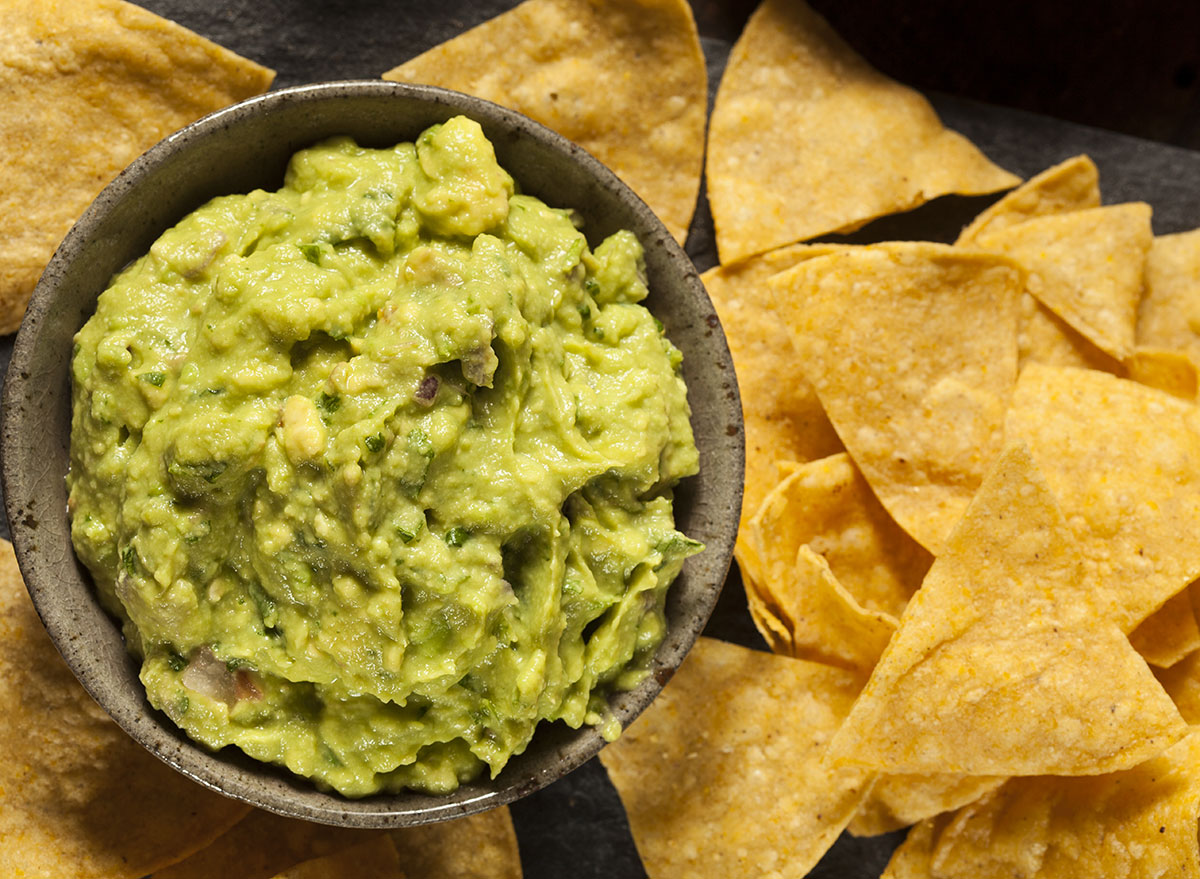
A scoop of guacamole is one of the most effective fat-burning, hunger-squashing snacks known to man. Not only are avocados rich in vitamin B6—which directly counteracts the belly-fat-building stress hormone, cortisol—they're also full of monounsaturated fat. This healthy fat may actually prevent body fat distribution around the belly by down-regulating the expression of certain fat genes, according to research in the journal Diabetes Care. These same satiating fats may also be the reason behind another study that found people who ate half a fresh avocado with lunch reported a 40 percent decreased desire to eat for hours afterward.
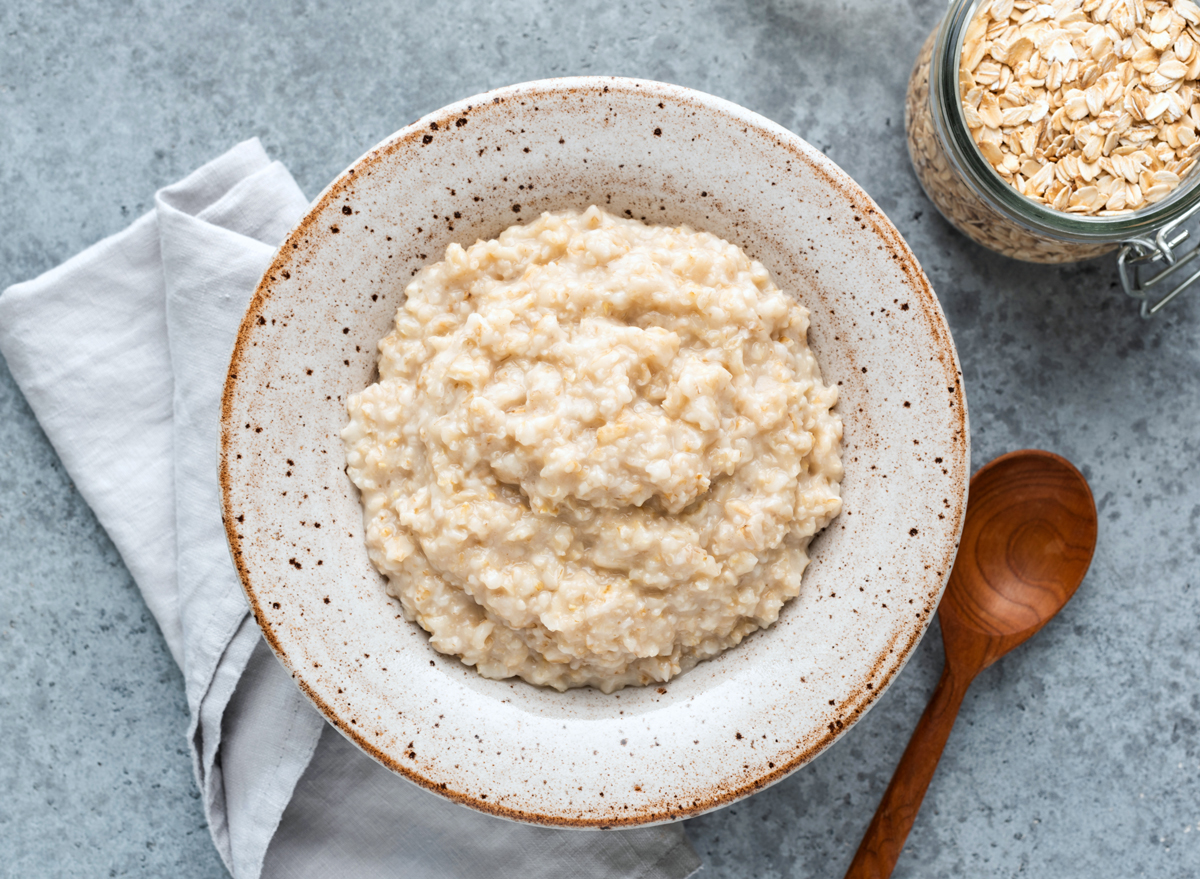
Carbs are not the enemy. Not whole-grain carbs, that is. People who ate three or more daily servings of whole grains (such as oats) had 10 percent less belly fat than people who ate the same amount of calories from processed white carbs (bread, rice, pasta), according to a Tufts University study. It's theorized that this is due to whole grains' high fiber and slow-burn properties, which keep you satiated longer.
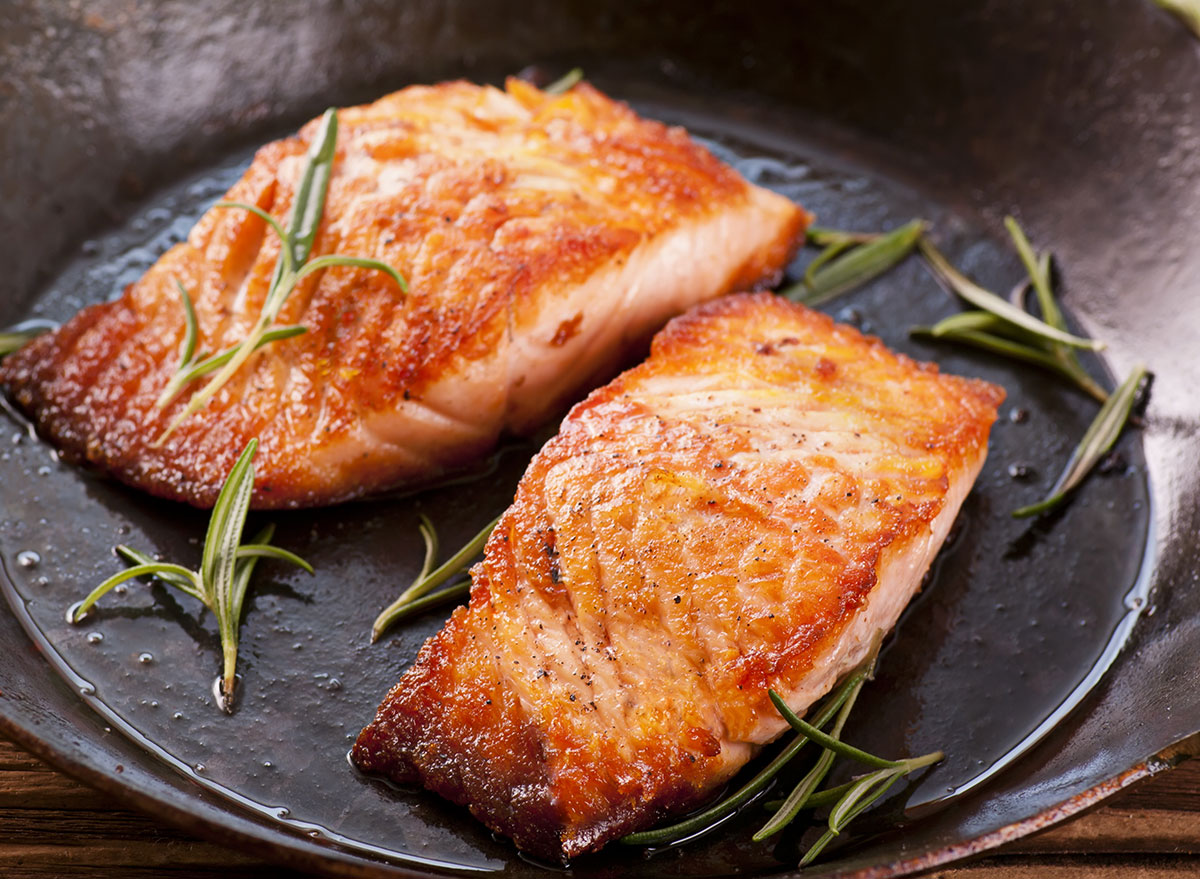
The fat-burning equation is simple: Protein builds muscle. More muscle = more fat burning. And fish is one of the healthiest sources of lean protein—especially wild salmon, says dietitian Lauren Minchen, MPH, RD, CDN. It's also a rich source of anti-inflammatory omega-3 fatty acids, which fuel fat burning, block fat storage and aid weight loss, she explains. But that's not all: "Getting enough protein and healthy fat also helps to reduce cravings and has been shown to help keep weight off for longer," adds Alissa Rumsey, MS, RD, CDN, CSCS.
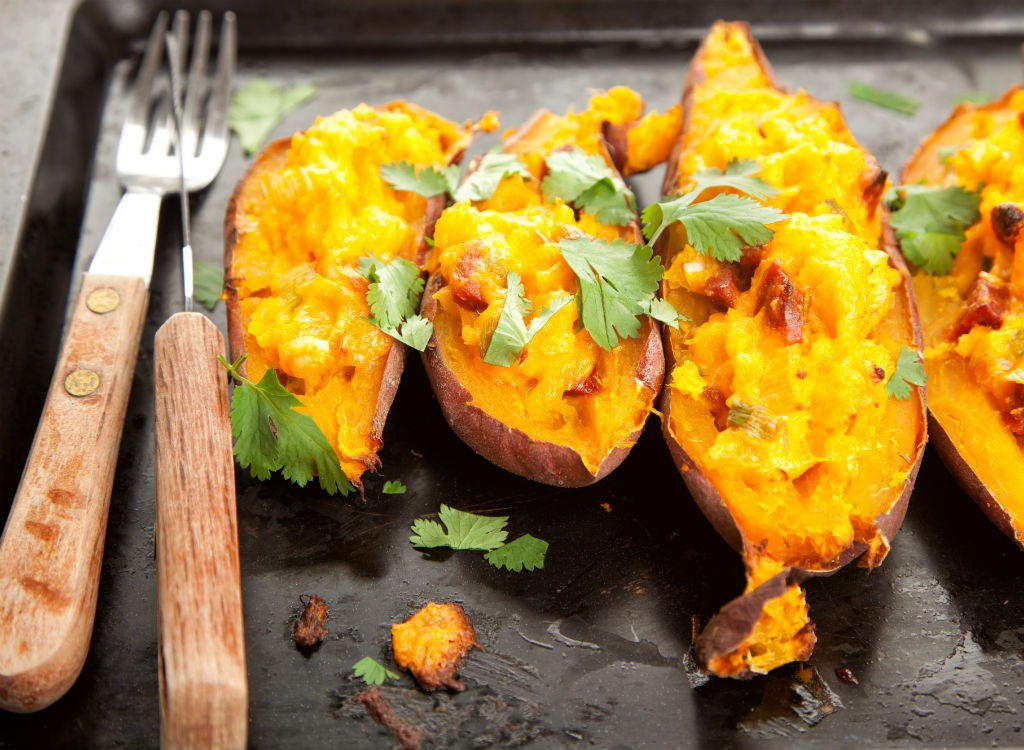
The phrase "slow carb" is anything but sluggish when it comes to blasting fat. Slow carbs are digested slowly, which keeps you feeling fuller and energized longer—and sweet potatoes are one of them. Among the magic ingredients here are carotenoids, antioxidants which stabilize blood-sugar levels and lower insulin resistance, which helps your body efficiently convert calories to energy rather than stored as fat. And their high vitamin profile (including A, C, and B6) give you more energy to burn at the gym.
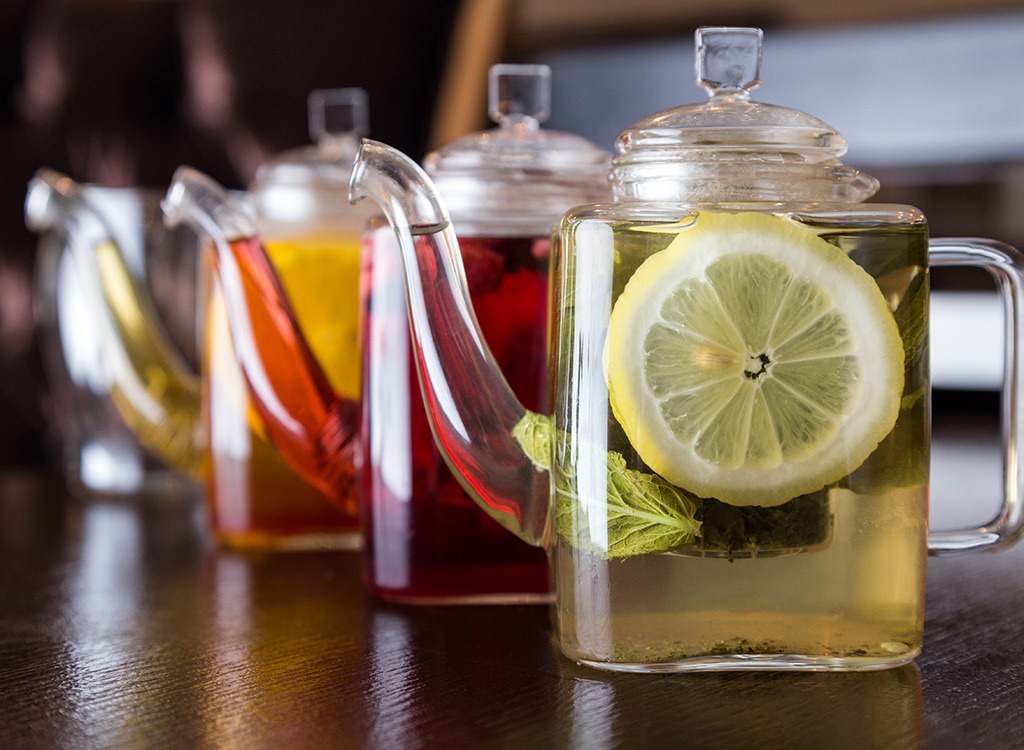
If there's such a thing as a muffin-top-melting tea, this is it. White tea works in three distinct ways to help strip away fat from your body. A study published in the Journal of Nutrition and Metabolism showed that white tea can simultaneously boost lipolysis (the breakdown of fat) and block adipogenesis (the formation of fat cells).
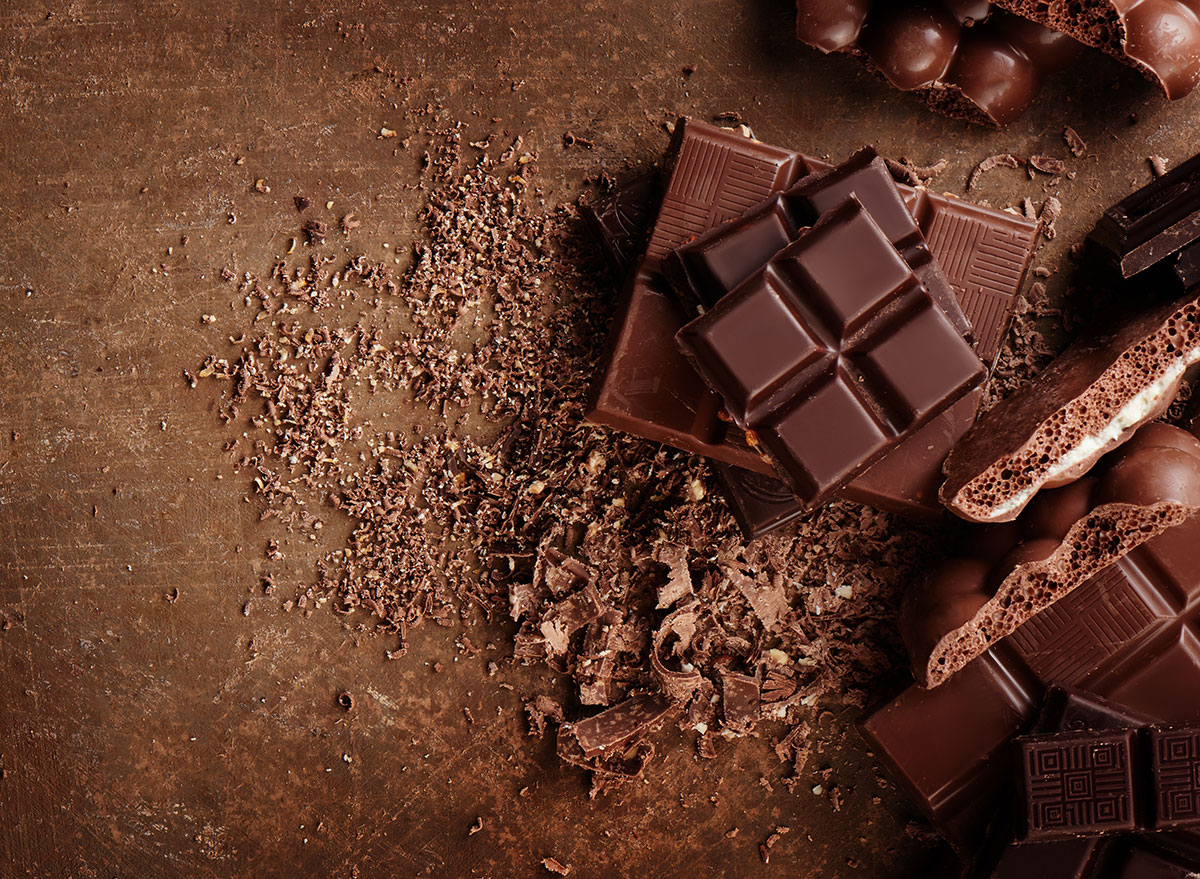
If you thought losing weight would mean giving up all your indulgences, look no further than dark chocolate. Louisiana State University researchers found that gut microbes in our stomach ferment chocolate and boost our body's production of gut-healthy polyphenolic compounds, including butyrate, a fatty acid that encourages the body to burn fat as fuel and turns off genes linked to inflammation. (Add fruit to the chocolate to boost fermentation and the release of the compounds.) Make sure you go with chocolate that has a cacao content of 70 percent or above—these have the highest concentrations of antioxidant polyphenols.
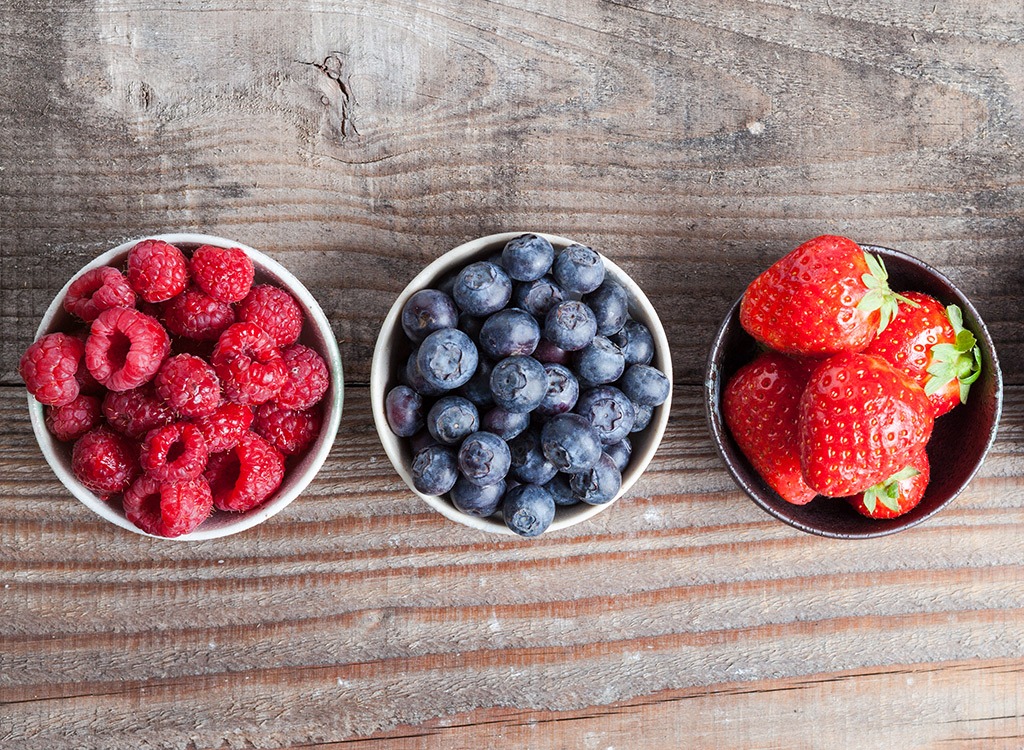
Berries are packed with polyphenol antioxidants that will help burn fat—and prevent it from forming—as well as boost your workout benefits by improving blood flow to your muscles. According to a Texas Woman's University study, mice that ate three daily servings of berries had 73 percent fewer fat cells. Pop some of the blue guys into your next smoothie and boost the fat-burning potential: blueberries are a potent source of resveratrol, an antioxidant which an International Journal of Obesity study showed could convert excess harmful white fat in mice into calorie-burning beige fat, which correlated with a 40 percent decreased risk for obesity. And when it comes to the sugar content in fruit, berries rank favorably on the list but are still a powerful way to curb cravings for sweets.
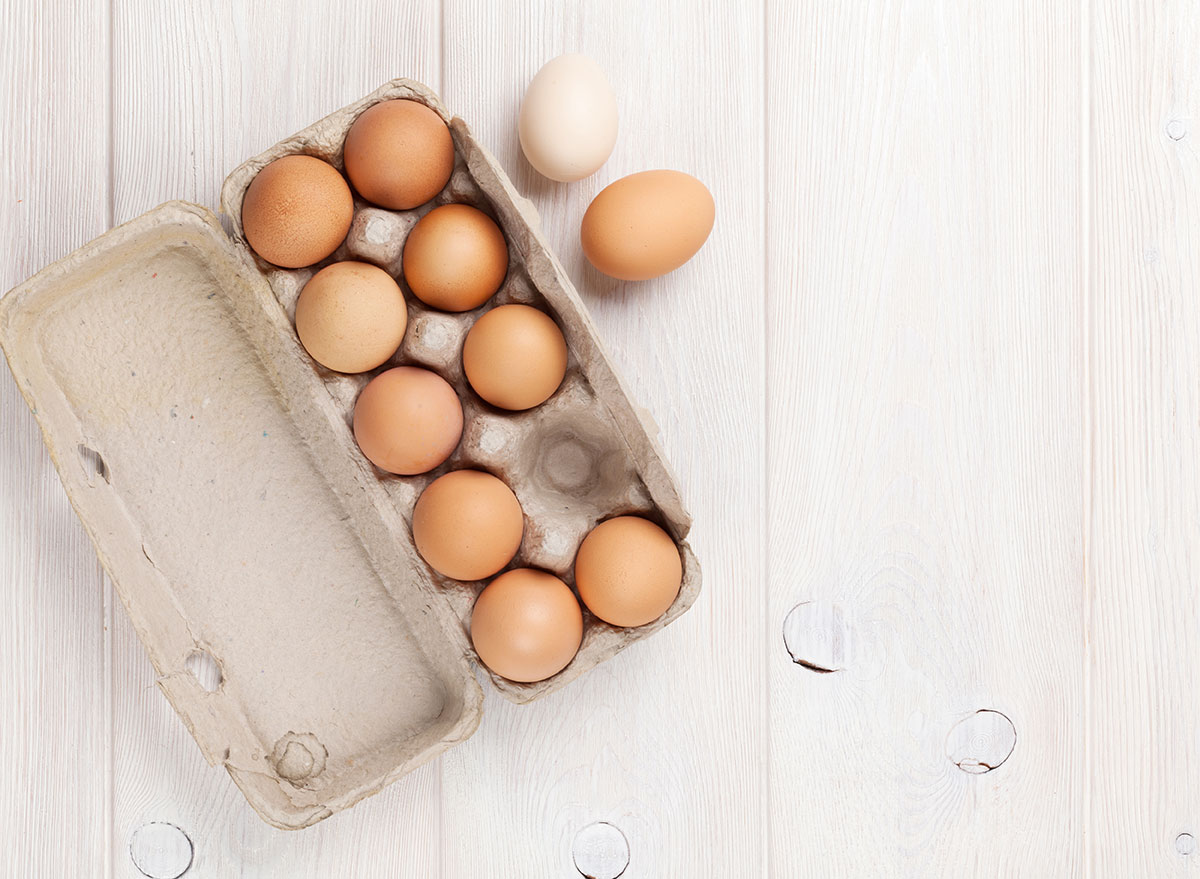
Sunny side up, scrambled, hard-boiled, or fried—it doesn't matter. A pan, spatula, and carton of eggs are all you need to fry some serious flab. Eggs are one of the best sources of choline, a major fat-burning nutrient that helps turn off the genes responsible for belly-fat storage. Bonus: eggs are a great source of lean protein, which can set the fat-burning pace for your entire day when eaten for breakfast. In a study of 21 men published in the journal Nutrition Research, half were fed a breakfast of bagels while half ate eggs. The egg group were observed to have a lower response to ghrelin, were less hungry three hours later and consumed fewer calories for the next 24 hours!
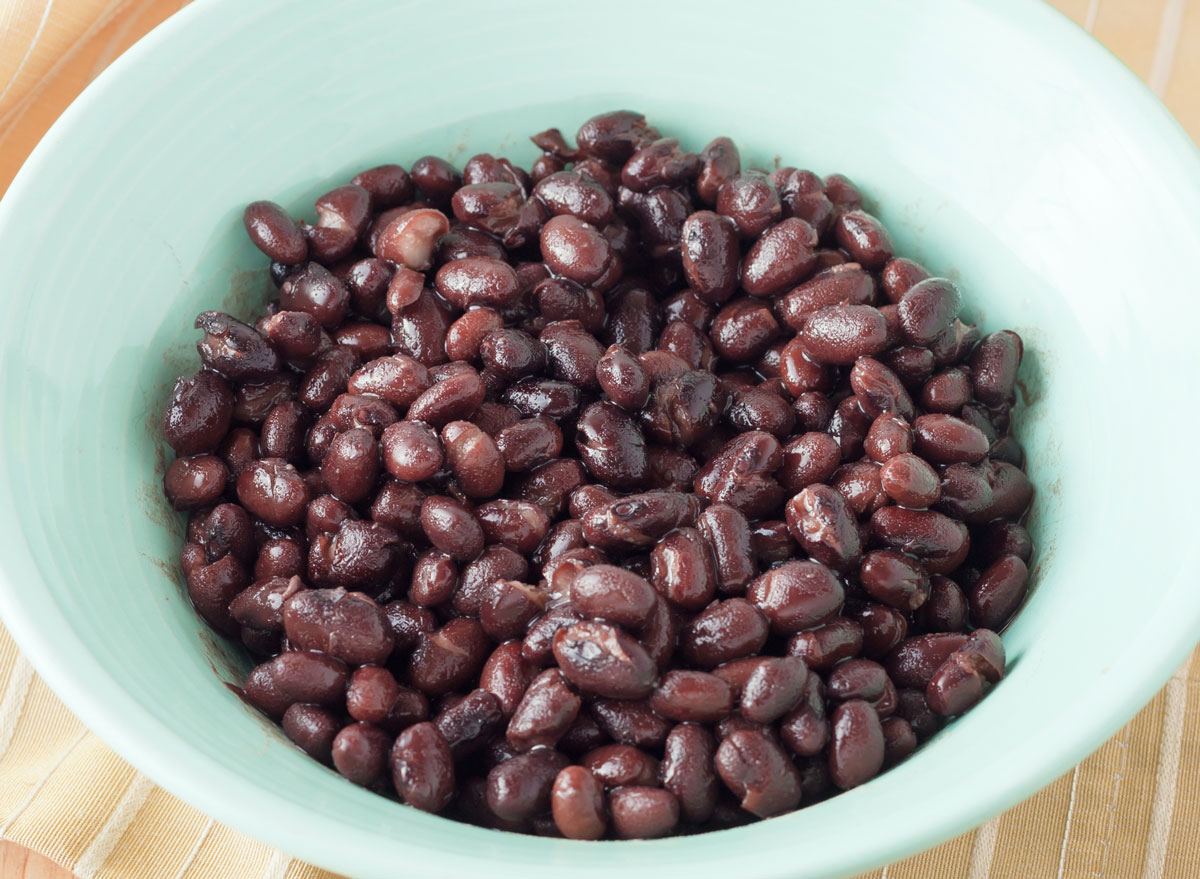
Research suggests these magical pulses are one of the closest things we have to a fat-burning pill. For starters, beans are a great source of resistant starch, a type of slow-digesting, insoluble fiber that feeds the healthy bacteria in your gut, triggering the production of the chemical butyrate, which encourages the body to burn fat as fuel and reduces fat-causing inflammation. They're also one of the top sources of soluble fiber. A recent study by Wake Forest Baptist Medical Center researchers found that for every additional 10 grams of soluble fiber eaten per day, a study subject's belly fat was reduced by 3.7 percent over five years. Black beans? One cup boasts an impressive 4.8 grams of soluble fiber.
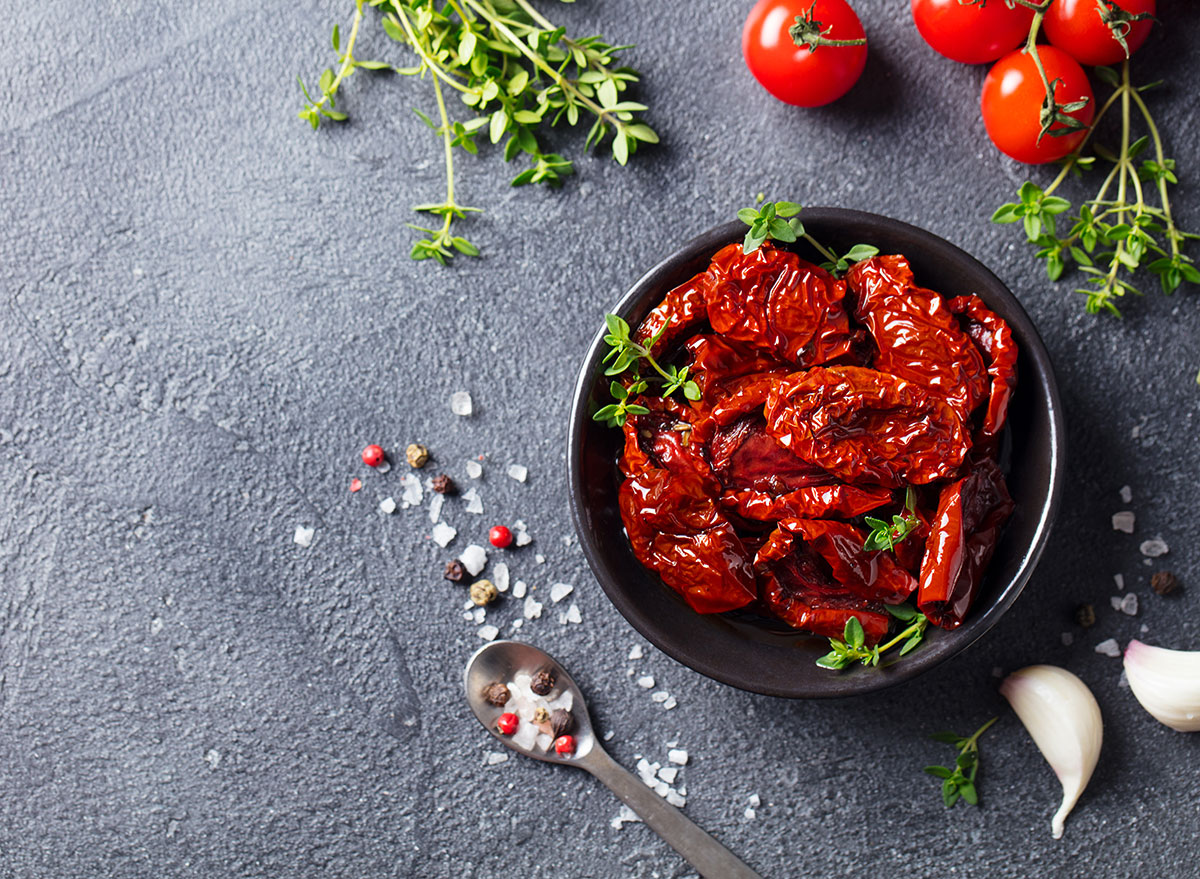
You say tomato, I say 9-oxo-ODA. That's the name of a compound found in the brilliant red fruits that Japanese researchers recently discovered can effectively activate your DNA to burn more fat. Tomatoes are also brimming in beta-carotene and lycopene, two potent antioxidants that mop up harmful compounds that promote fat storage. One Journal of Nutrition study found people whose diets contained the most beta-carotene and lycopene had the smallest waists and the least belly fat. And at only 5 calories apiece, grab a few sun-dried tomatoes! Cooked tomatoes contain more bioavailable lycopene than raw tomatoes, according to Cornell University researchers.

Each slice of grapefruit you add to your salad acts like a match to spark your body's fat-burning ability. A study published in the journal Metabolism found that those who ate grapefruit for six weeks lost a full inch off their waistlines. What's behind the belt-tightening effect? The fruit is rich in phytochemicals, bioactive compounds that recent research shows stimulate the production of a hormone called adiponectin, which is involved in the breakdown of body fat. Japanese research suggests the smell of the juicy fruit can "turn on" calorie-burning brown fat cells, promoting the breakdown of body fat while reducing appetite.
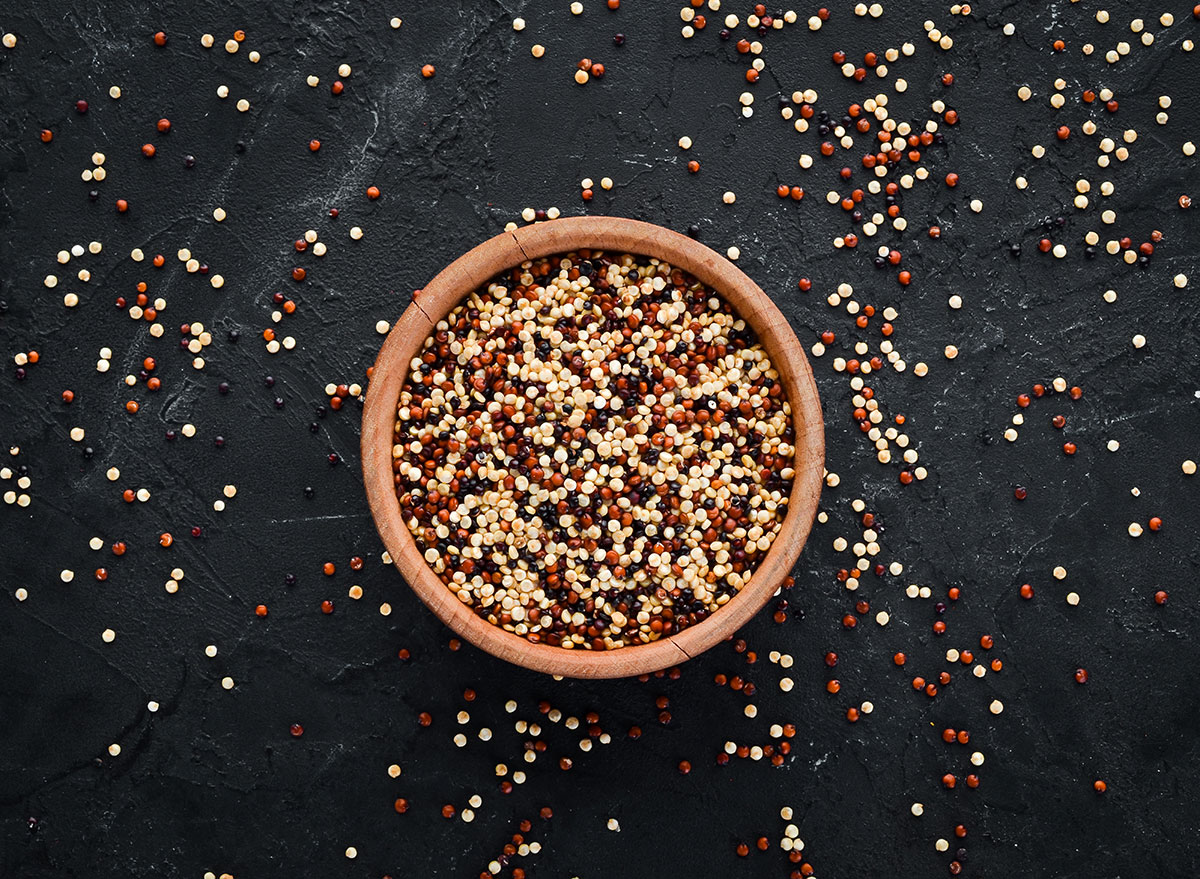
This ancient grain will make that flat tire around your waist history! Quinoa is a complete protein, meaning that it contains the complete chain of amino acids that are necessary for muscle building and fat loss. In a 2015 study in the Journal of Diabetes Investigation, researchers discovered that patients who ingested higher amounts of vegetable protein were far less susceptible to metabolic syndrome (a combination of high cholesterol, high blood sugar, and obesity). Before you thought it couldn't get any better, there's more: quinoa has the highest level of betaine, according to aFood Chemistry study. Why is that important? Well, aNutrients study linked betaine supplementation to a revved metabolism and inhibition of fat production.
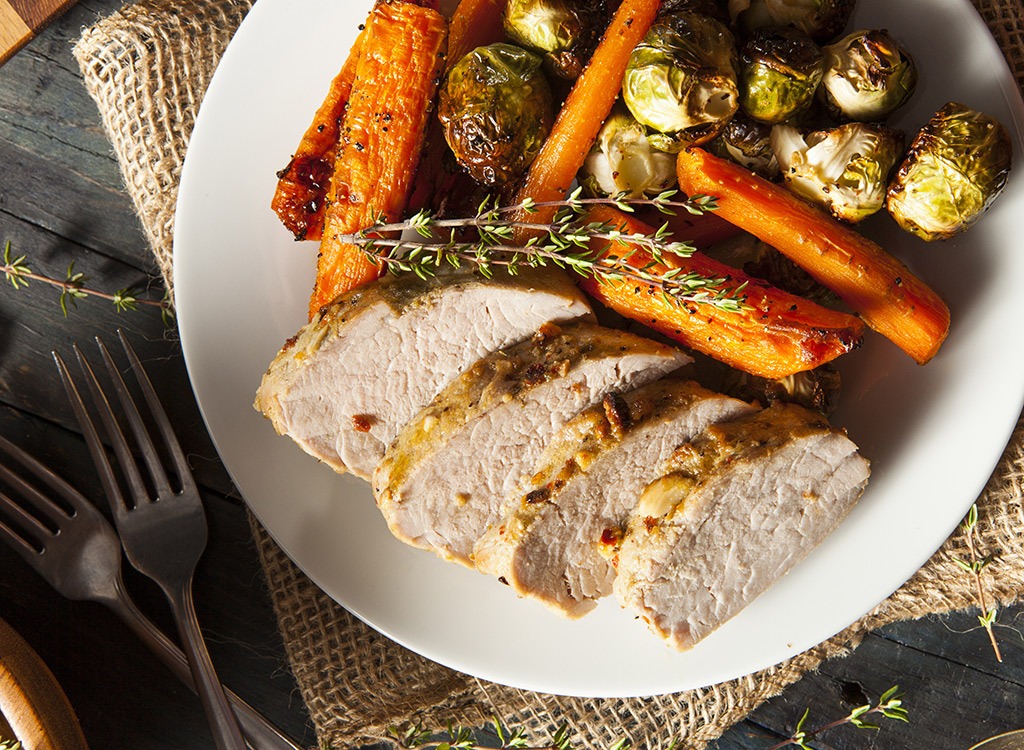
A longtime enemy of doctors and dieters, pork has been coming around as a healthier alternative of late–as long as you choose the right cut. Your best bet is pork tenderloin. A three-ounce serving of pork tenderloin has slightly less fat than a skinless chicken breast; It has 24 grams of protein per serving and 83 milligrams of choline. In a study published in the journal Nutrients, scientists asked 144 overweight people to eat a diet rich in fresh lean pork. After three months, the group saw a significant reduction in waist size, BMI and belly fat, with no reduction in muscle mass! They speculate that the amino acid profile of pork protein may contribute to greater fat burning.

It's a dietary miracle: A fat that makes you skinny. Dietary supplementation of coconut oil actually reduced abdominal obesity in a study published in the journal Lipids. Of the participants, half were given two tablespoons of coconut oil daily and the other half were given soybean oil, and although both groups experienced overall weight loss, only the coconut oil group saw smaller waistlines. And other researchers have also pointed to the waist-whittling effects of the tropical oil. In a separate study of 30 men, those who ate 2 tablespoons of coconut oil a day shrank their waists by an average of 1.1 inches in one month. Thank C.O.'s medium-chain triglycerides, which are burned as energy instead of being stored as fat, and lauric acid, which has been shown to pinpoint belly fat and torch it.
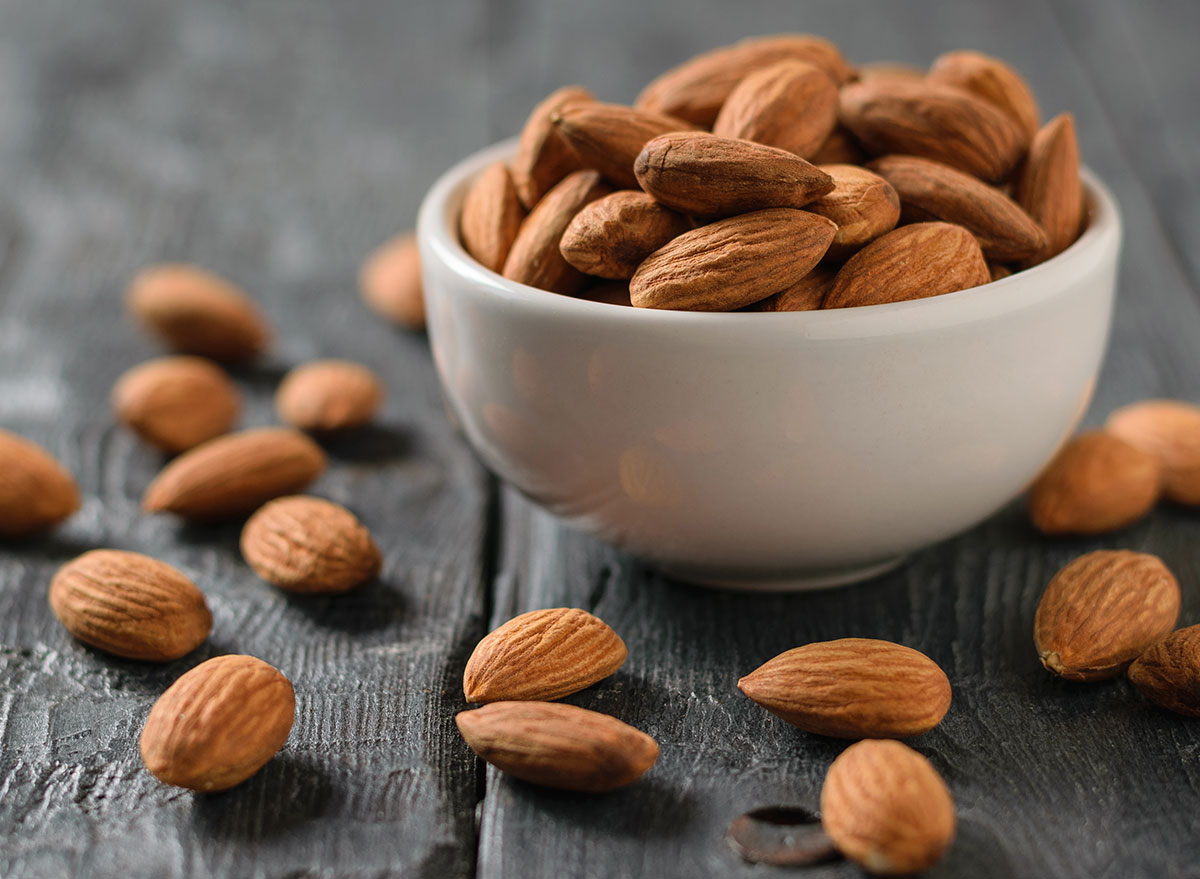
A handful of almonds packs a serious fat-burning punch: One International Journal Of Obesity and Related Metabolic Disordersstudy of overweight adults found that eating about a quarter-cup of almonds for 6 months led to a 62 percent greater reduction in weight and BMI, thanks to a compound that limits the fat absorbed by the body. And eating just 1.5 ounces of almonds daily led to a reduction in belly and leg fat, a 2015 study published in the Journal of the American Heart Association showed. For added effect, eat almonds before working out: The amino acid L-arginine can help you burn more fat while building muscle.
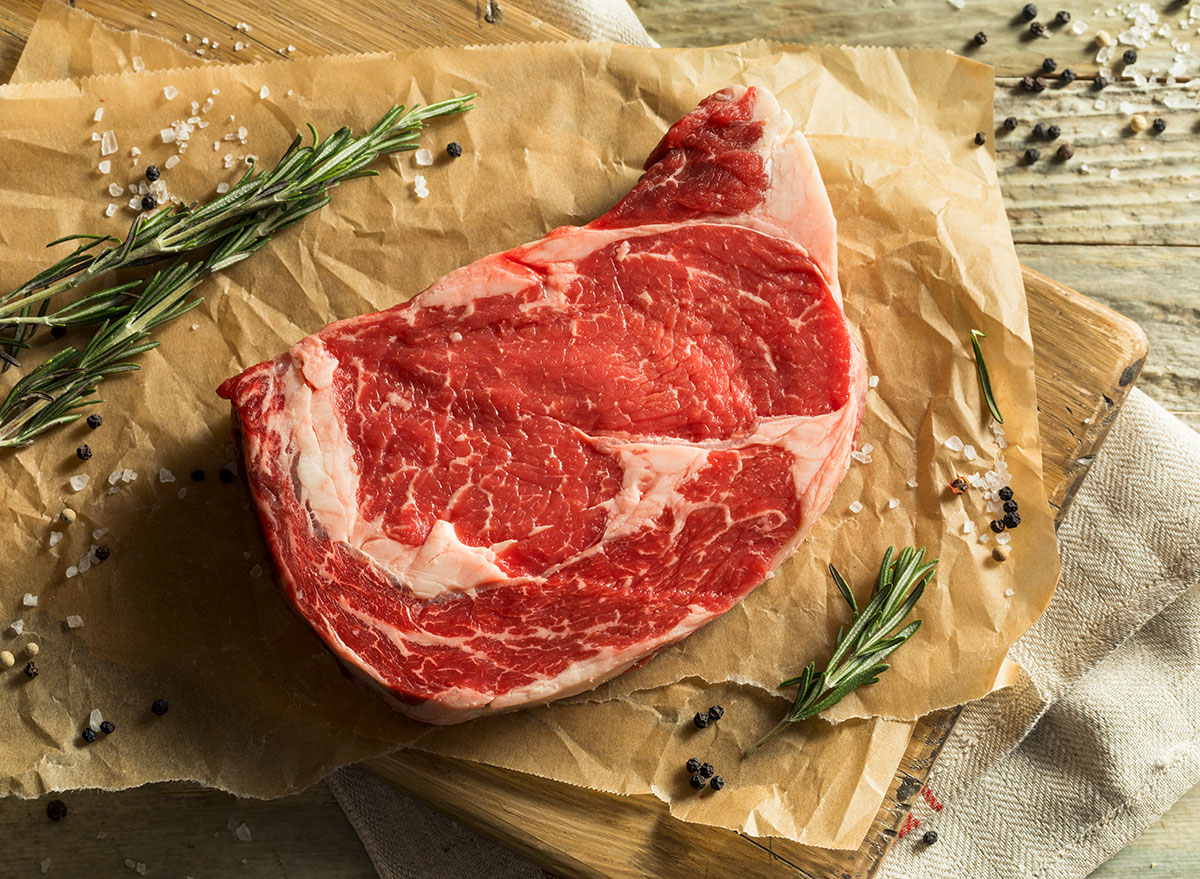
Foods rich in the amino acid leucine can help build the lean muscle mass that's needed to trim excess fat from your frame, according to Jennifer McDaniel, MS, RDN, CSSD, LD. It literally jumpstarts the process of developing muscle mass—and red meats are one of the best sources around. Go grass-fed to get the added benefits of omega-3s and conjugated linoleic acids—these two fatty acids help to decrease the inflammation in your body that causes fat storage.

Apple cider vinegar, in particular, is composed mostly of acetic acid, which has been shown to delay gastric emptying and slow the release of sugar into the bloodstream. Research published in the journal Bioscience, Biotechnology, Biochemistry found that a small pool of study participants given ACV over a 12-week period lost more weight, body fat and inches from their middle than participants that were given a placebo. How does it work? Besides maintaining stable blood sugar levels, ACV produces proteins inside the body that burn fat.
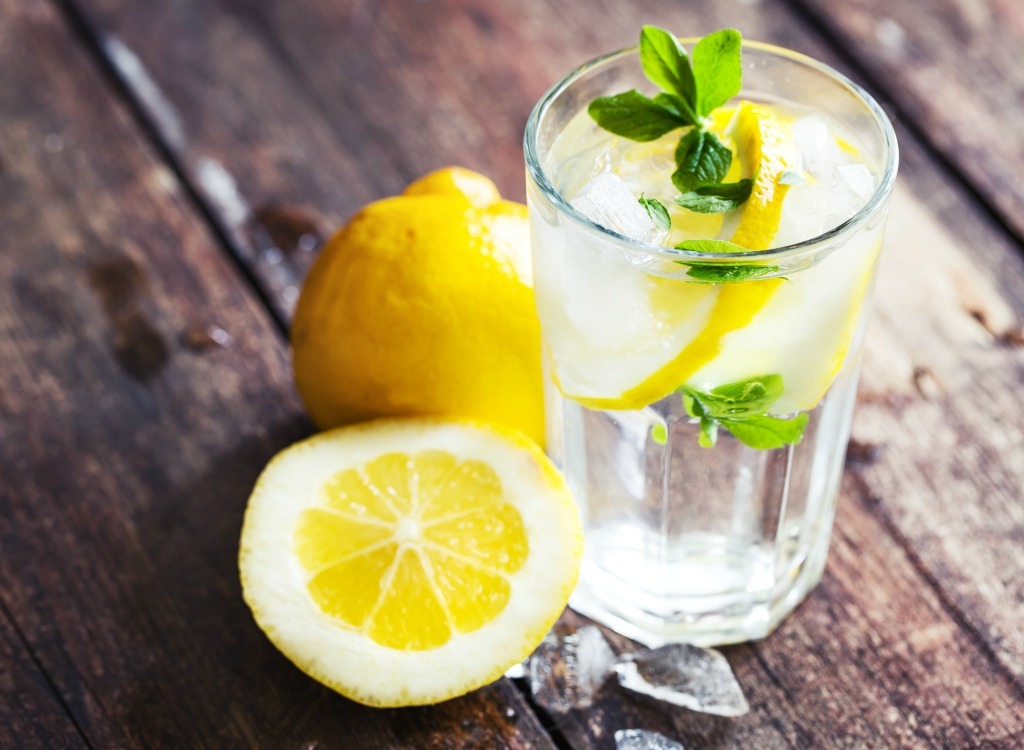
Don't pass up on this cheap trick. "One of the most under-appreciated magic fat-burning elixirs is water," says Ajia Cherry, ACE, CHC, CPT, personal trainer and Founder at Functional Innovative Training. "The more water you drink, the fuller you will feel, the easier it is to cut back on unnecessary calories. That's an essential element of weight and fat loss," she explains. Water is necessary to keep your metabolism functioning optimally. For even more of a kick, add a lemon to your glass. D-limonene, an antioxidant in lemon peel, has been shown to have a therapeutic effect on metabolic disorders in mice with high-fat-diet-induced obesity.
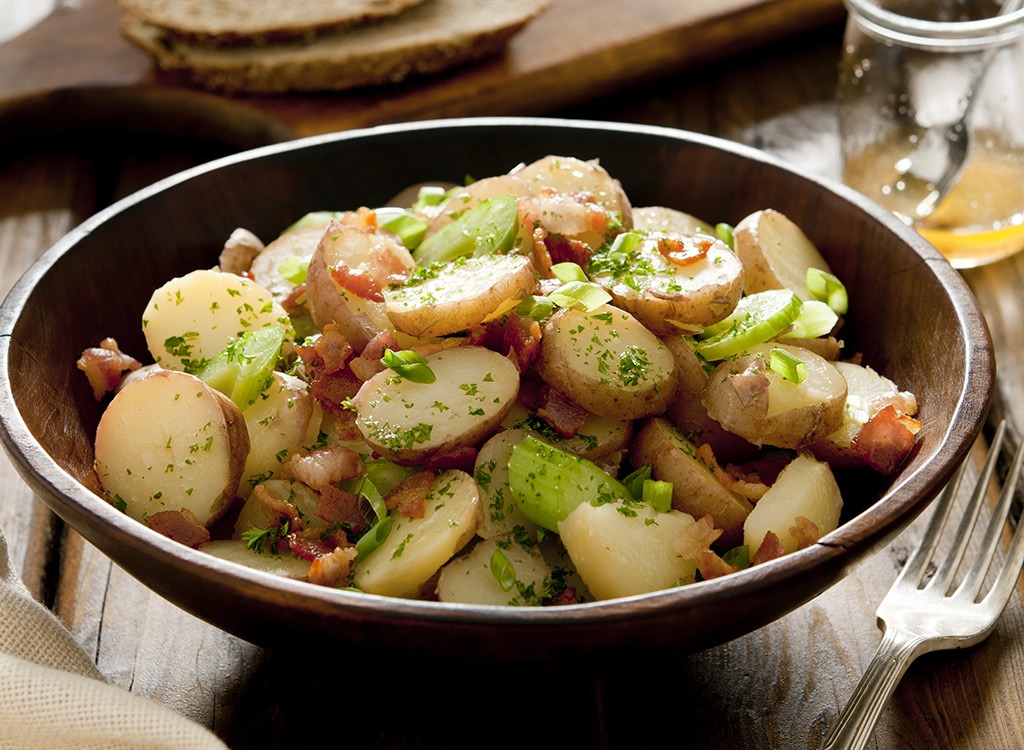
Not all white foods are bad for weight-loss. In fact, plain boiled potatoes are the most filling food there is, according to the Satiety Index of Common Foods, an Australian study published in the European Journal of Clinical Nutrition. To maximize their flat-belly benefits, throw 'em in the refrigerator and make a potato salad. The cooling process will crystallize the tubers into resistant starch, which takes longer to break down in your intestine, producing fat-burning butyrate and delaying hunger pangs.
RELATED: Learn how to fire up your metabolism and lose weight the smart way.
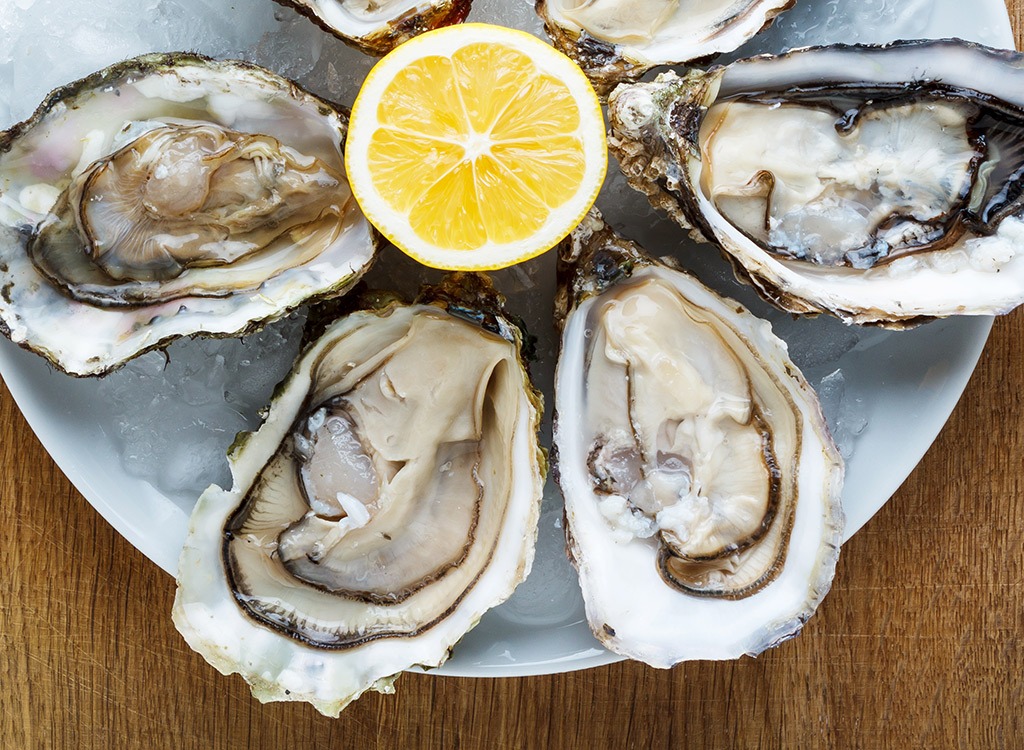
Resolve to do more prying. Oysters are one of the best food sources of zinc, a mineral that works with the hormone leptin to regulate appetite. Research shows that overweight people tend to have higher levels of leptin and lower levels of zinc than slimmer folk. A study published in the journal Life Sciences found that taking zinc supplements could increase leptin production in obese men by 142 percent! A half-dozen oysters only have 43 calories but provides 21 percent of your RDA of iron—deficiencies of which have been linked to a significant increase in fat gene expression.
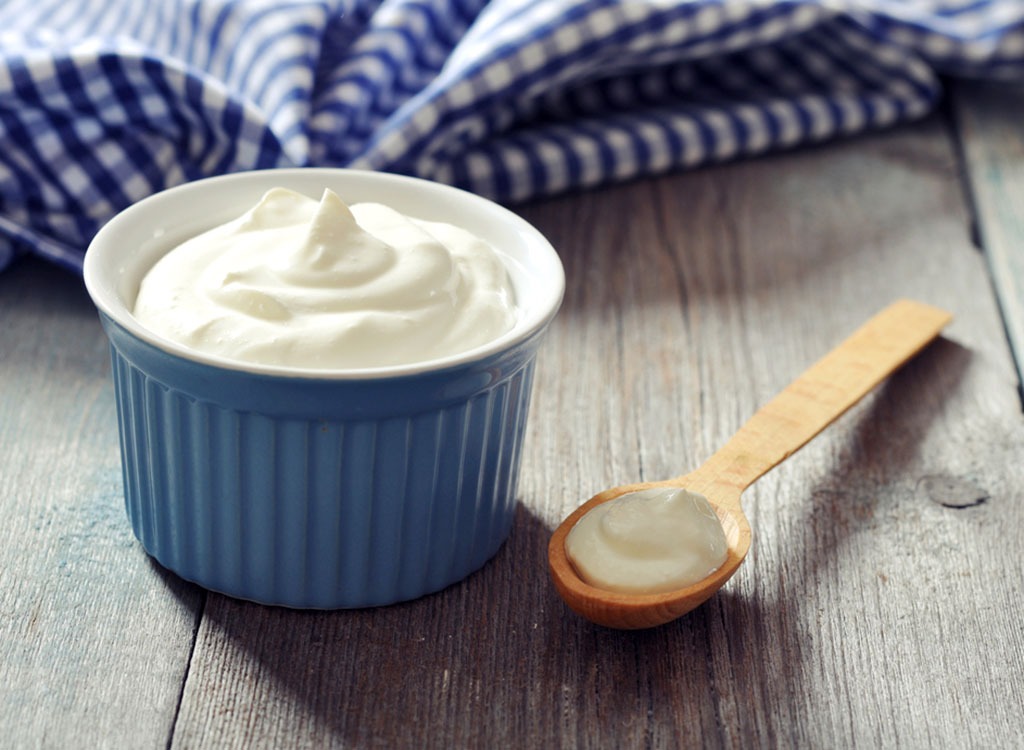
Whether you're adding it to your smoothie or having it as the perfect post-workout recovery fuel, Greek yogurt will help you build muscle. This creamy snack is brimming with muscle-building protein—about 20 grams in a 7-ounce cup. It has the one-two punch of vitamin D and calcium, which turn off cortisol, a stress hormone that causes the body to hang on to belly fat. Don't believe us? Take it from the researchers at the University of Tennessee who found that people who ate 18 ounces of Greek yogurt a day lost 22 percent more weight and 81 percent more belly fat than those who didn't.
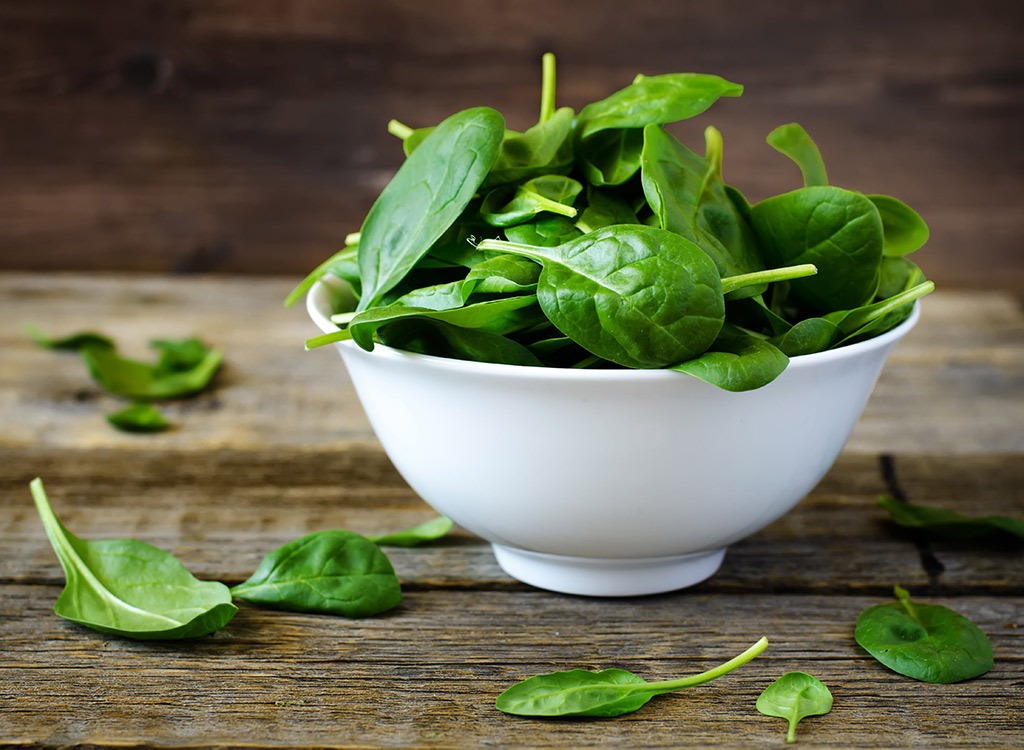
The leafy green is jam-packed with energy-boosting nutrients such as vitamin A, iron, and folate. It can also reduce your appetite—helping to curb your calorie intake and encourage your body to start burning fat—thanks to natural compounds called thylakoids. Swedish researchers found that over three months, women who consumed a five-gram thylakoid supplement from spinach reported a 25 percent reduction in hunger and cravings and significantly more weight loss (11 pounds) than the control group!
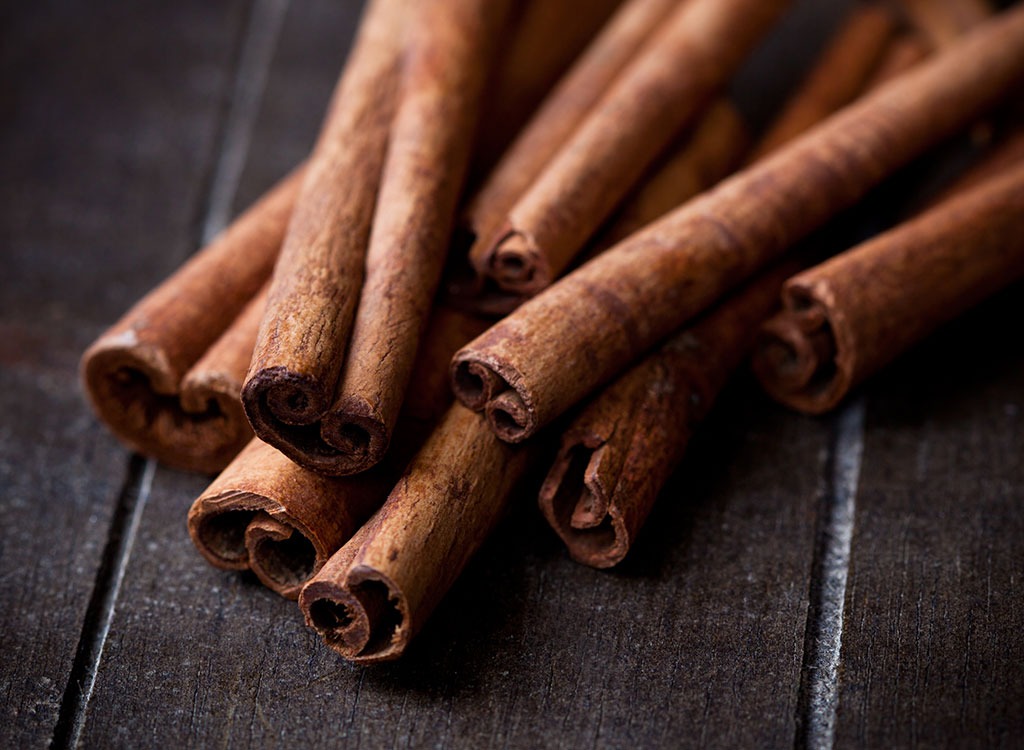
Kickstart your morning—and your metabolism—with this warming spice. Cinnamon contains powerful antioxidants called polyphenols that are proven to alter body composition and improve insulin sensitivity (which means it keeps blood sugar stable, preventing hunger-inducing spikes and crashes). Japanese researchers found that mice who ate a daily helping of cinnamaldehyde (the ingredient that gives cinnamon its flavor) lost belly fat, while those who skipped the spice did not. Add it to your overnight oats or sprinkle some in your coffee to reap the benefits.
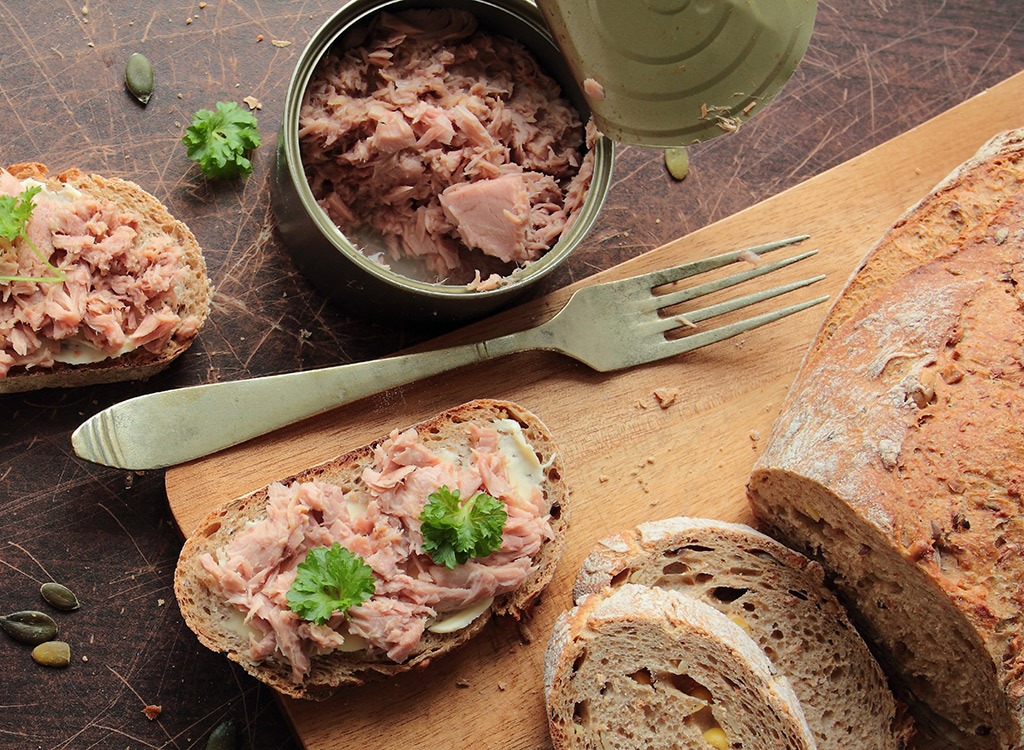
Top your salad with this lean protein and soon enough all your friends will be asking you to tuna-round so they can compliment your new slimmed down look. As a primo source of docosahexaenoic acid (DHA), canned light tuna is one of the best and most affordable sources of lean protein for fat loss, especially from your belly! One study inPLOS One showed that omega-3 fatty acid supplementation from fish oil was connected to a lower waist-hip ratio as well as lower levels of abdominal fat.
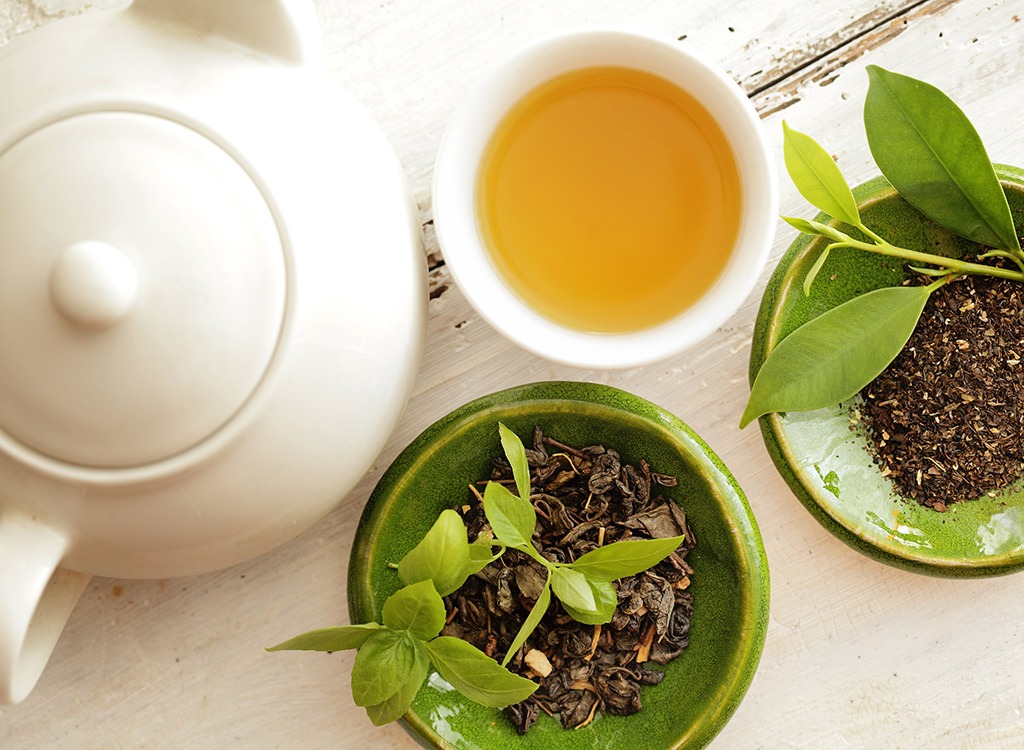
Many teas have been shown to boost metabolism, block the creation of new fat cells, speed the release of fat from cells, and actually turn off fat genes due to their catechin levels, but green tea has a leg up on the competition. This magical elixir is particularly high in the antioxidant ECGC, the compound that burns fat and stops it from forming. Pair your tea with a workout for a fat-burning bonus. Exercisers who drank four to five cups of green tea daily and worked out for 25 minutes lost more belly fat than their non-tea-drinking counterparts, a study published in The Journal of Nutrition found.
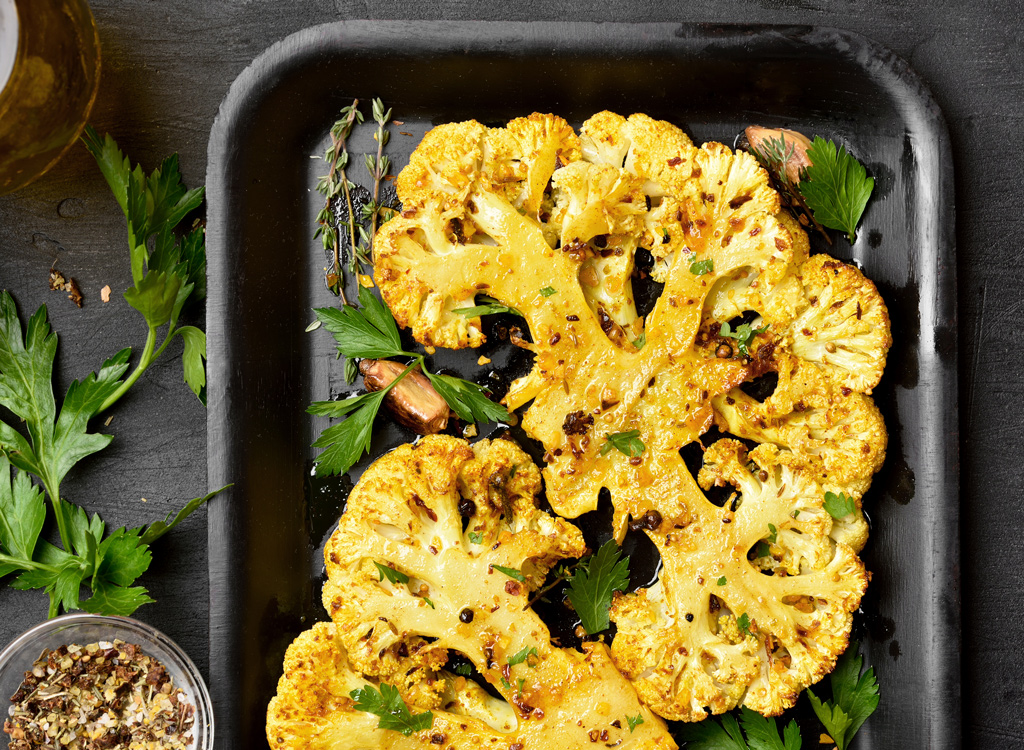
Crunchy cruciferous vegetables are more thermogenic than other types of foods, meaning your body burns more calories digesting them. Incorporating these foods into your diet can help you boost calorie and fat burn by the increased work your body will have to go through just digesting the food.
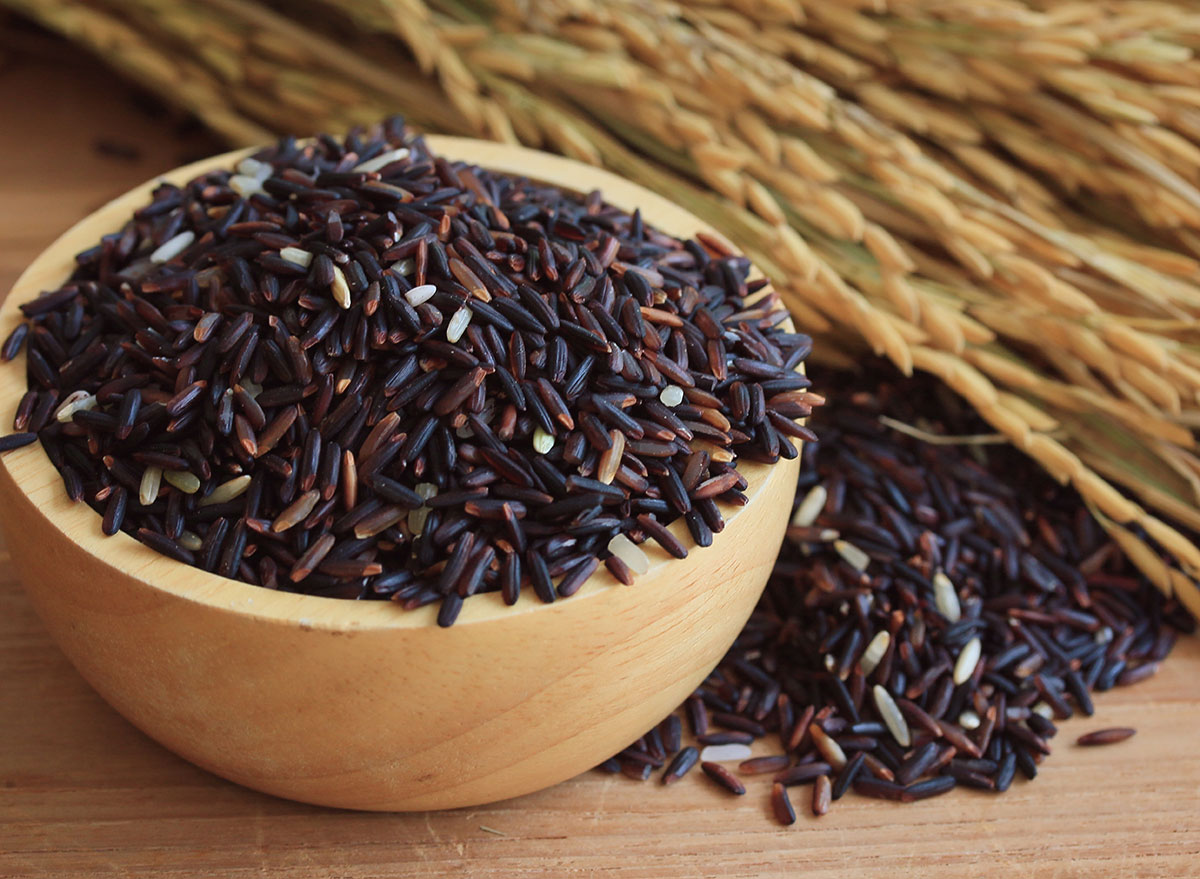
Known as "forbidden rice" because only emperors were allowed to eat it, black rice may be the cheapest source of antioxidants around. According to the American Chemical Society, black rice has more antioxidants than a spoonful of blueberries, with more satiating fiber, more vitamin E, and less sugar. More antioxidants mean less inflammation, which means less fat storage for you.
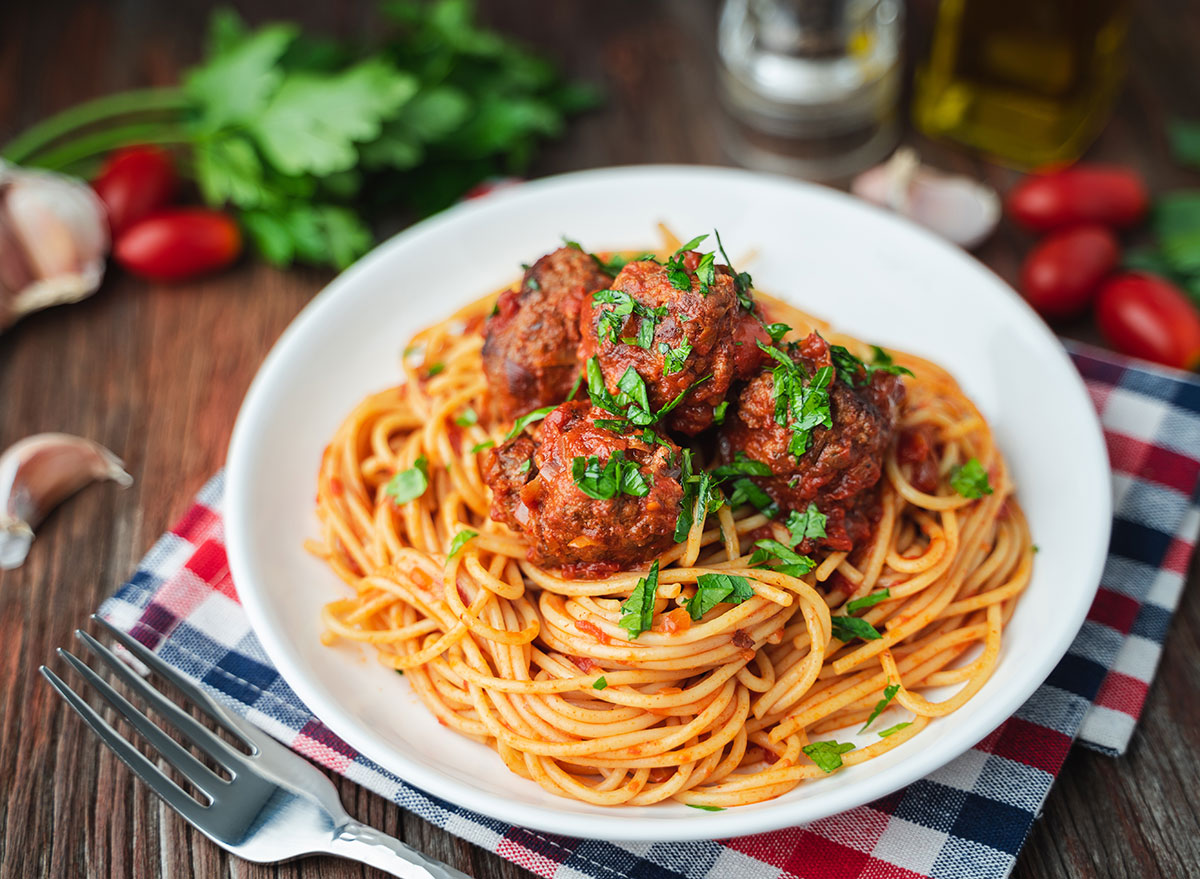
Some cheat meals are better than others. And a high-carbohydrate, moderate-protein meal, however "naughty," can help you stay on track. The reason: Carbohydrates have the greatest influence on leptin levels, which help you burn fat and feel satisfied. And protein has the greatest influence on satiety because of its influence on appetite-regulating hormones and high thermic effect—the process of digesting protein requires more energy of your body than any other macronutrient. So, go ahead and grab a bowl of spaghetti and meatballs. Contrary to popular belief, pasta is actually a fairly low-glycemic food, meaning it won't drastically spike your blood sugar levels.
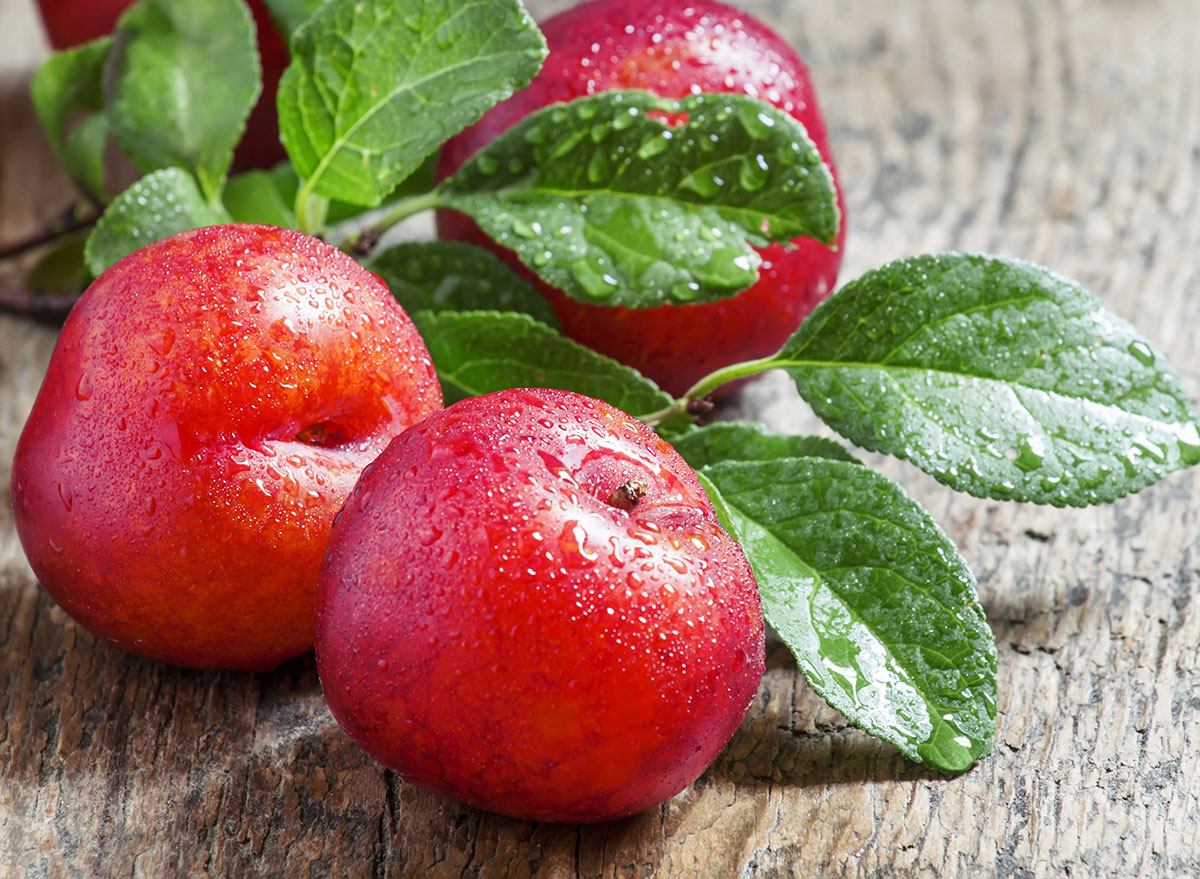
Red is one of the best colors for weight loss. That's because the color is due to higher levels of nutrients called flavonoids—particularly anthocyanins—which calm the action of fat-storage genes, according to Oxidative Medicine and Cellular Longevity research. In fact, red-bellied stone fruits like plums boast phenolic compounds that have been shown to "turn off" fat genes. Plus, their pectin—a gelatin-like type of fiber found in the cell walls of fruits—limits the amount of fat your cells can absorb, as shown by a Nutrition & Metabolism study.
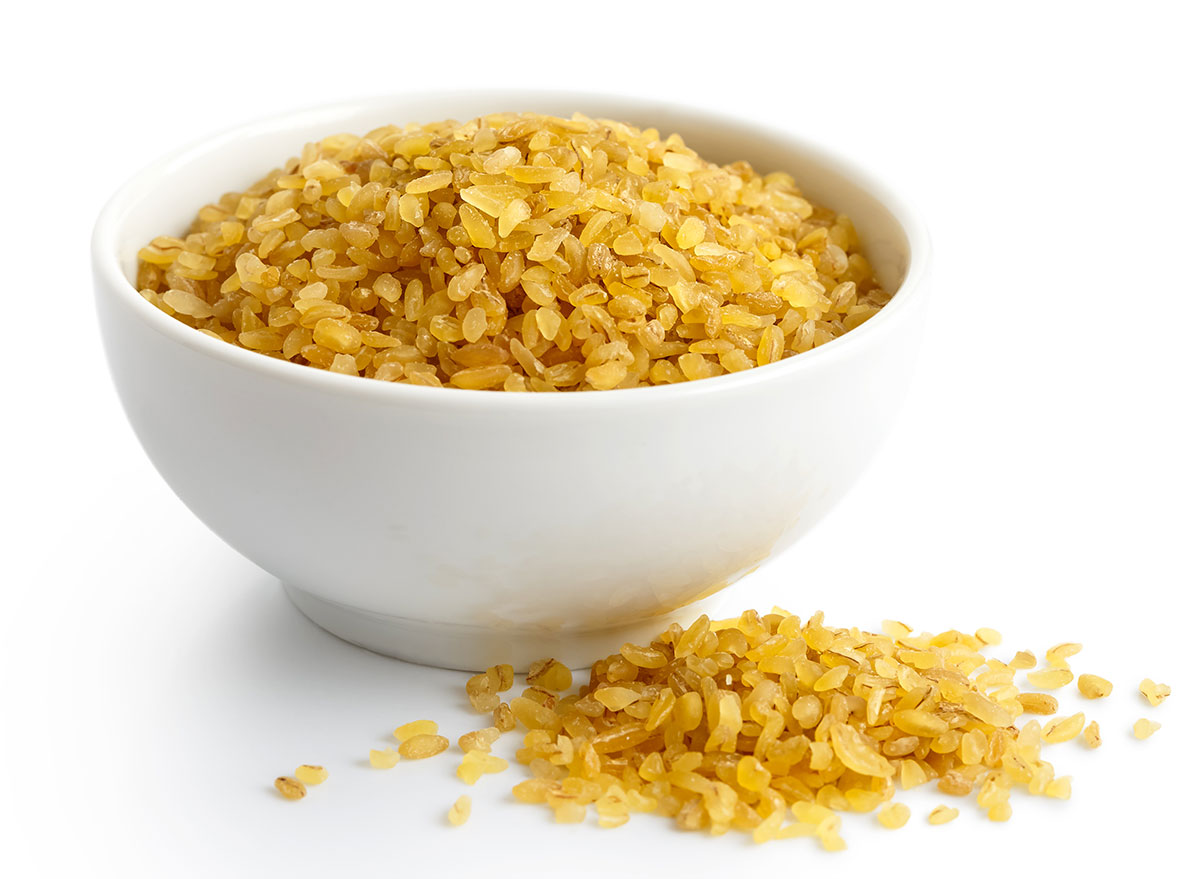
Had enough of boring rice? Add some bulgur into your diet. Although this grain is traditionally used in tabbouleh—a staple dish of Mediterranean cooking made by combining bulgur with chopped parsley, garlic, diced tomatoes, olive oil, and lemon juice—you can also use it as a base of salad bowls or a side for a chicken dish. This cereal will help you burn fat thanks to boasting over eight grams of belly-filling fiber; A study published in the journal Annals of Internal Medicine found that by simply increasing the amount of fiber you eat each day (to 30 grams) while keeping calories the same could help you lose weight, lower blood pressure, and improve your body's insulin response as effectively as more complicated diets that try to overhaul your entire diet.
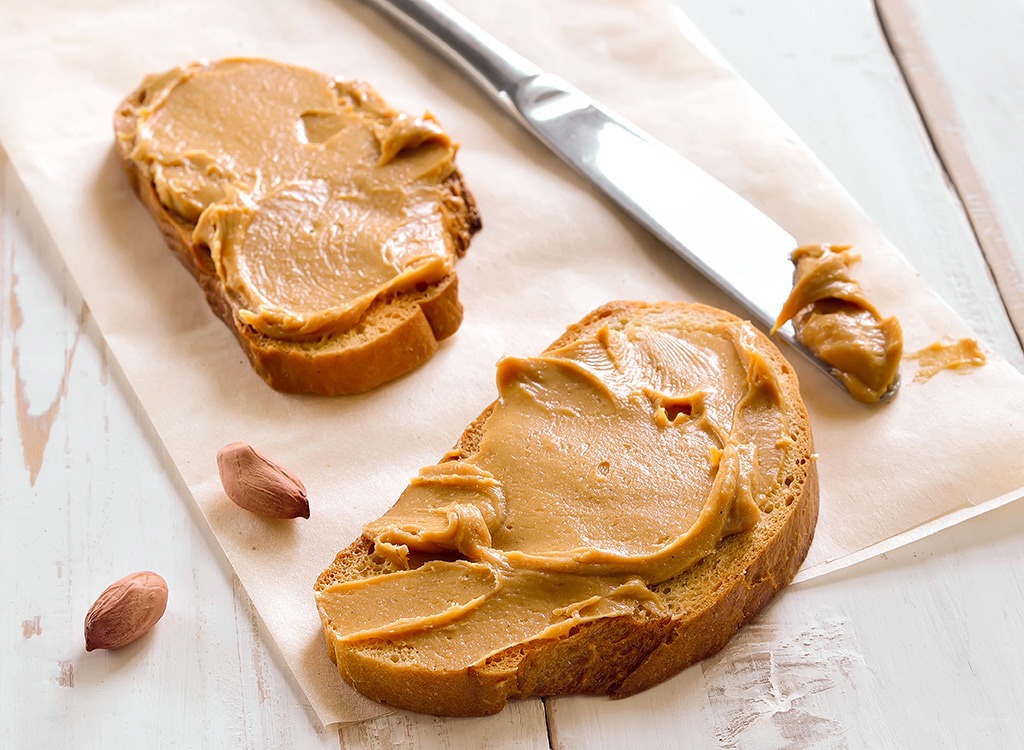
This classic lunchbox sandwich condiment is teeming with flat-belly nutrients such as cholesterol-lowering monounsaturated fats and is a great source of plant-based protein. According to a recent study presented at the annual Society for Endocrinology conference, researchers found that when protein is digested and broken down into amino acids in your body, one of those amino acids—phenylalanine—triggers hormones that help reduce appetite and ultimately leads to fat burn and weight loss. Go for brands that have an ingredient list of just two items: nuts and a little salt, or look to our guide: Best and Worst Peanut Butters.

Bad breath is but a small price to pay for reaching your body goals, right? According to a recent Japanese study, when rats were put on a high-fat diet, the animals that were also given a garlic compound gained less weight than their peers. Experts attribute the fat-fighting benefits to a powerful compound in garlic called allicin. (It also happens to be the same compound that gives garlic its pungent taste and smell.)
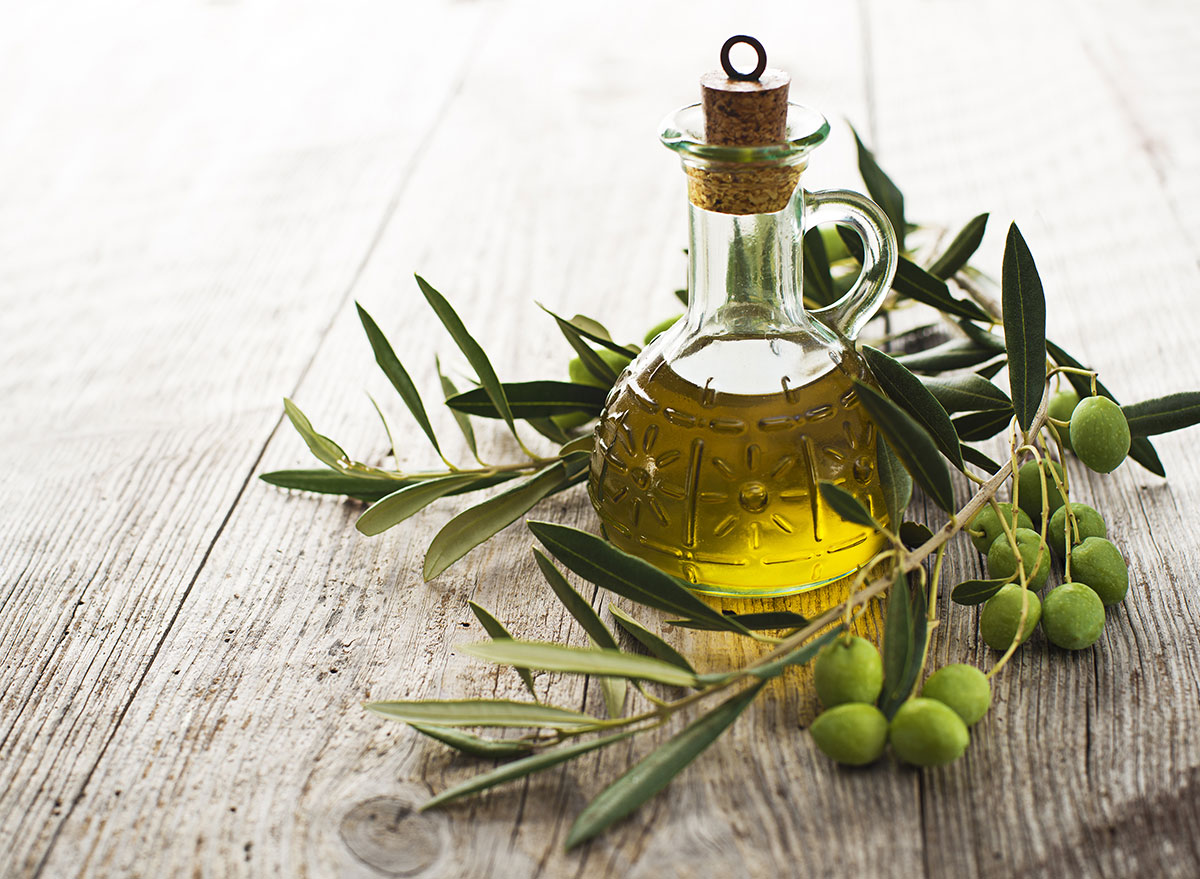
Surprised? Although olive oil contains fat, it actually contains a type of healthy fat that has been found to decrease levels of fat-storing inflammation. According to a review published in the International Journal of Molecular Sciences, a polyphenol only found in unrefined extra virgin olive oil—oleocanthal—reduces inflammation in a similar way that ibuprofen does: it prevents the production of two pro-inflammatory enzymes, COX-1 and COX-2.

One of the reasons your metabolism isn't burning away fat as efficiently as you'd like? Look to your magnesium levels. This essential micronutrient is required for the body to produce and store energy, and also helps boost lipolysis (a process by which your body releases fat from its stores to use as energy)—yet 75 percent of Americans do not get their RDA of this important metabolism-boosting mineral. Just a half cup of pumpkin seeds provides nearly 100 percent of your daily magnesium needs.
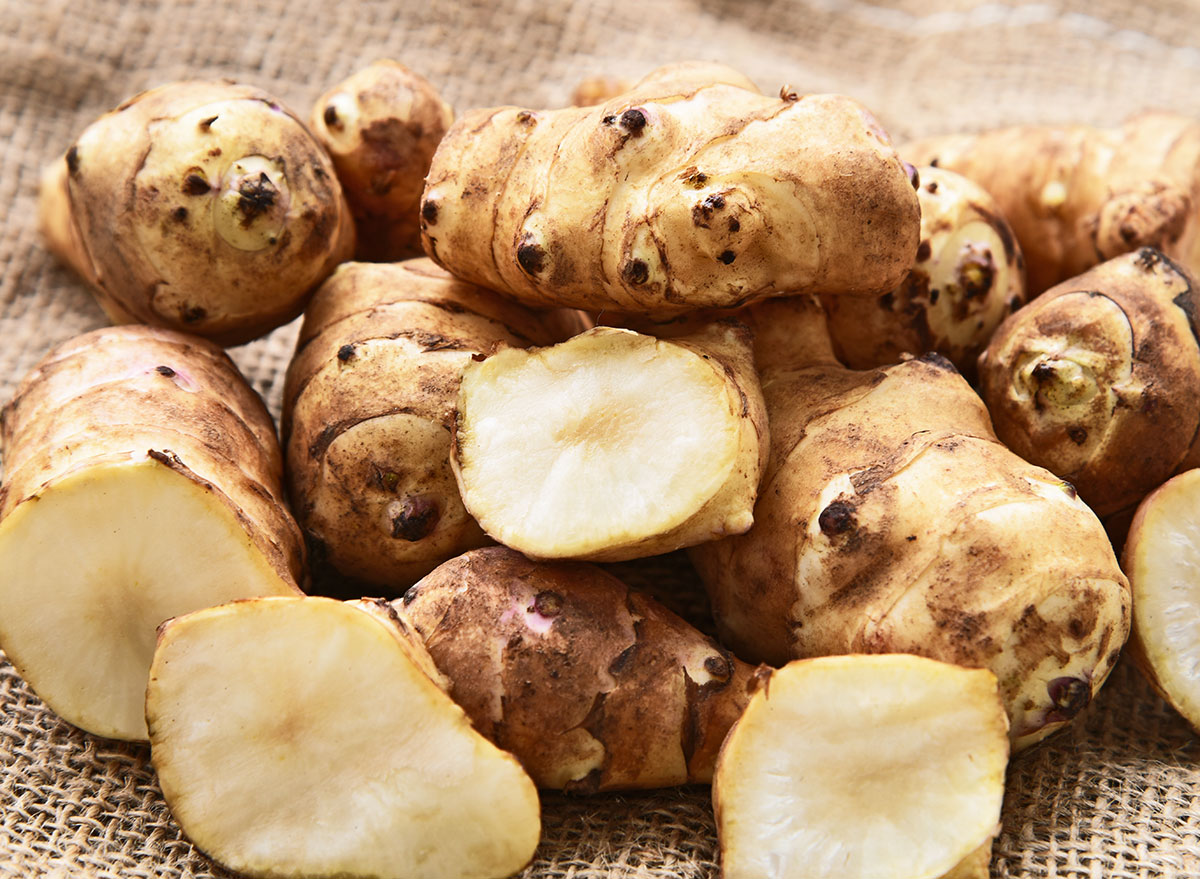
You may also know this root veggie as a sunchoke since they're the roots of a type of sunflower. According to a Canadian study, subjects whose diets were supplemented with a type of gut-healthy insoluble fiber called oligofructose not only lost weight but reported less hunger than those who received a placebo. Researchers discovered that the subjects who consumed the prebiotic fiber had higher levels of ghrelin—the hunger-suppressing hormone—and lower levels of blood sugar. And you guessed it: Jerusalem artichokes are one of the best sources of the fiber.
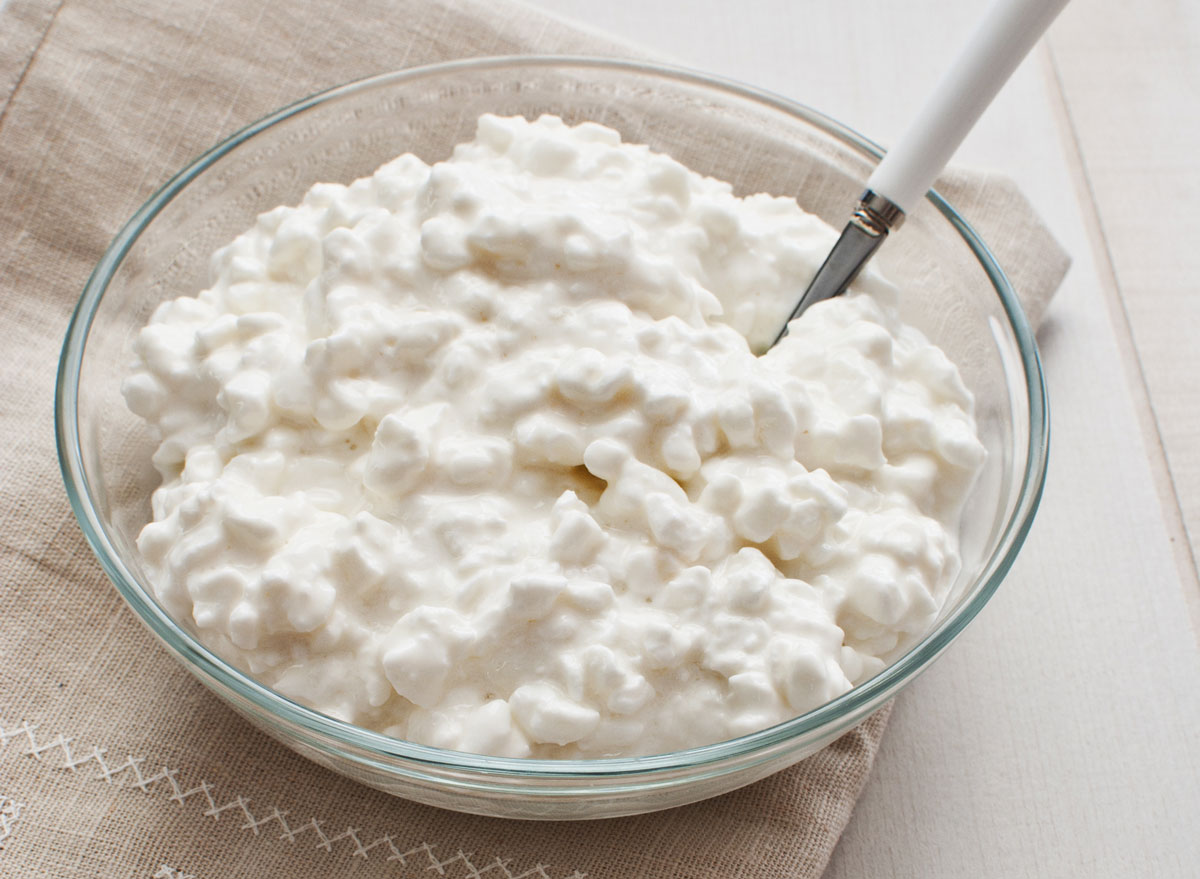
Although your diet steers your weight loss progress, not getting enough sleep can be a giant roadblock. When you don't get enough sleep each night, you're more likely to eat more calorie-dense meals the next day, according to a study in the American Journal of Clinical Nutrition. While we know sleep is an important part of any weight loss routine, many of us don't realize eating certain foods before putting our heads on the pillow may actually enhance our ability to fall and stay asleep. Among the best foods to eat before sleep is cottage cheese. This snack is rich in casein protein—a slow releasing milk protein that will keep a rumbling tummy at bay through the night—and also contains the sleep-promoting amino acid tryptophan.
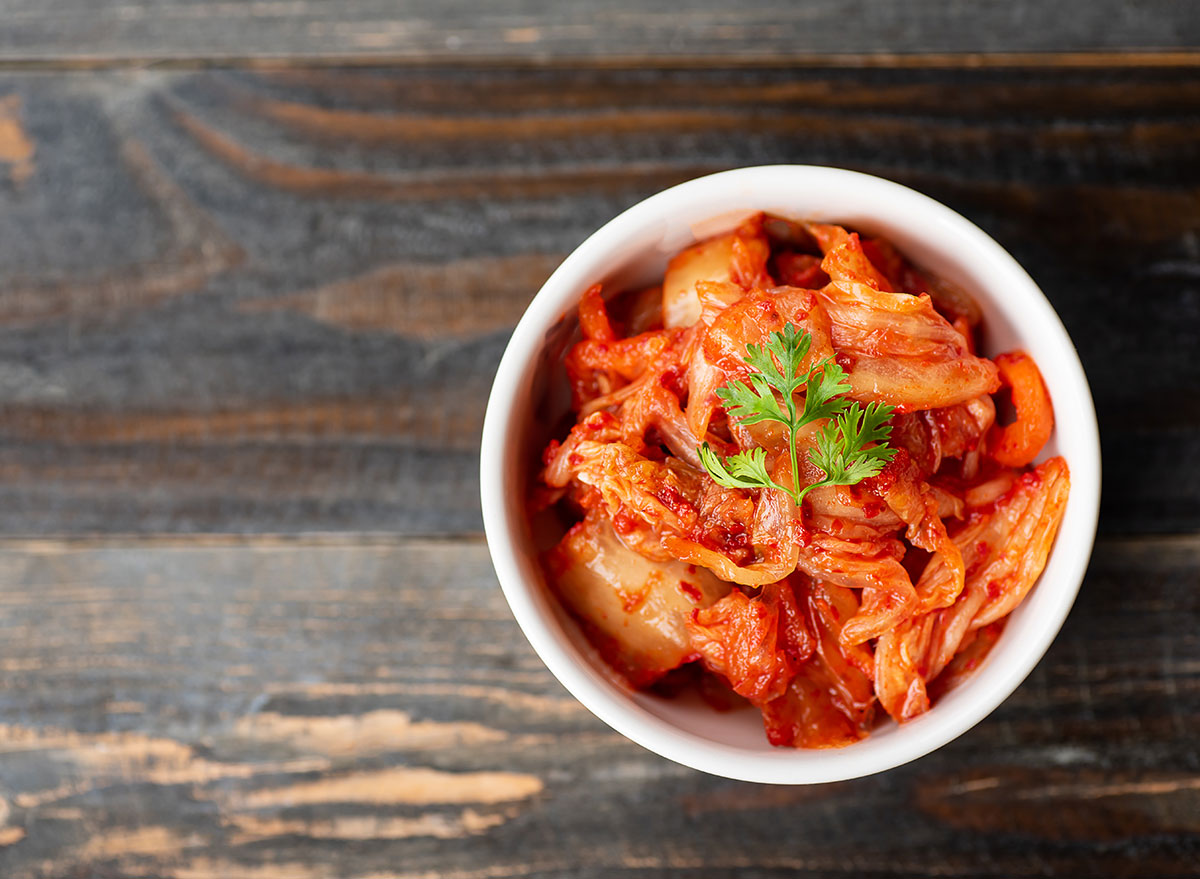
This Asian veggie dish is made by fermenting a blend of cabbage, radishes, and scallions with a seasoned paste of red pepper, salted shrimp, or kelp (koji) powder. Fermented foods are great for healing your gut thanks to the high levels of probiotics, but the unique strains found in kimchi may also help you stay slim: Researchers at Kyung Hee University in Korea induced obesity in lab rats by feeding them a high-fat diet. The group that got a Lactobacillus brevis supplement— the culture strain found in kimchi—was able to suppress the diet-induced increase in weight gain by 28 percent! If kimchi isn't your thing, also consider adding one of these probiotic foods for a healthier gut to your diet.
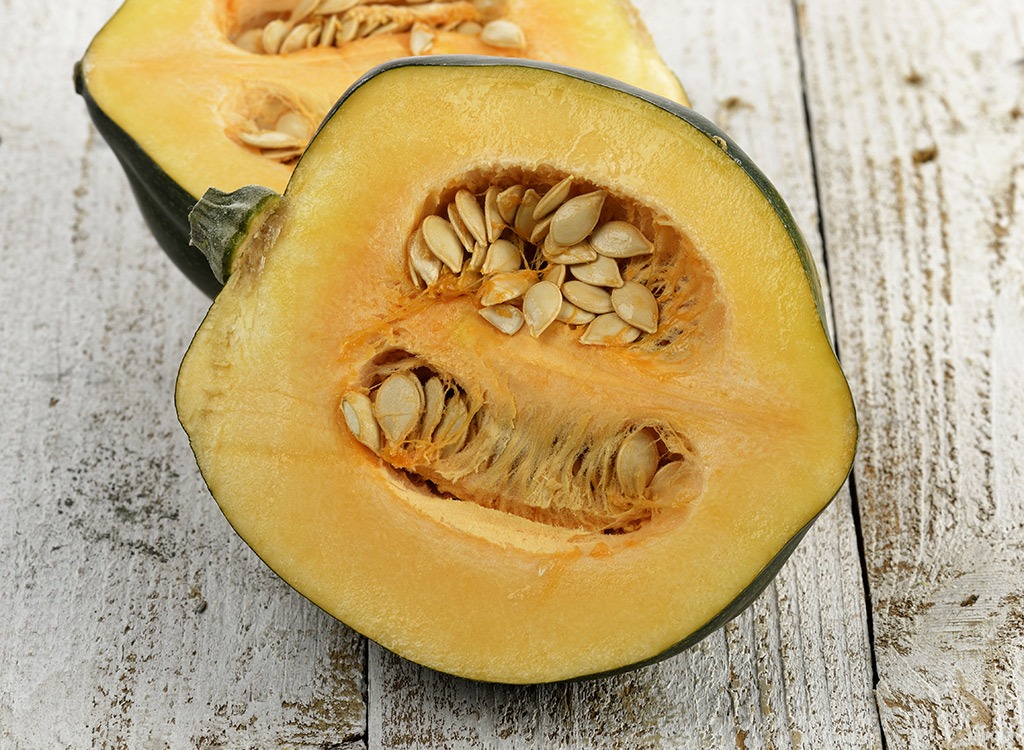
This naturally sweet winter squash boasts one of the highest fiber counts of all the veggies, ringing in at a whopping 9 grams per cup. Promoting feelings of fullness—and thus staving off overeating so you can burn, rather than gain, fat—with satiating fiber isn't the only way you'll target that turkey neck. That's because acorn squash is also an excellent source of vitamin C, a micronutrient that your body uses to decrease levels of the fat-storing hormone cortisol and boost the fat-burning effects of exercise, according to Arizona State University researchers.
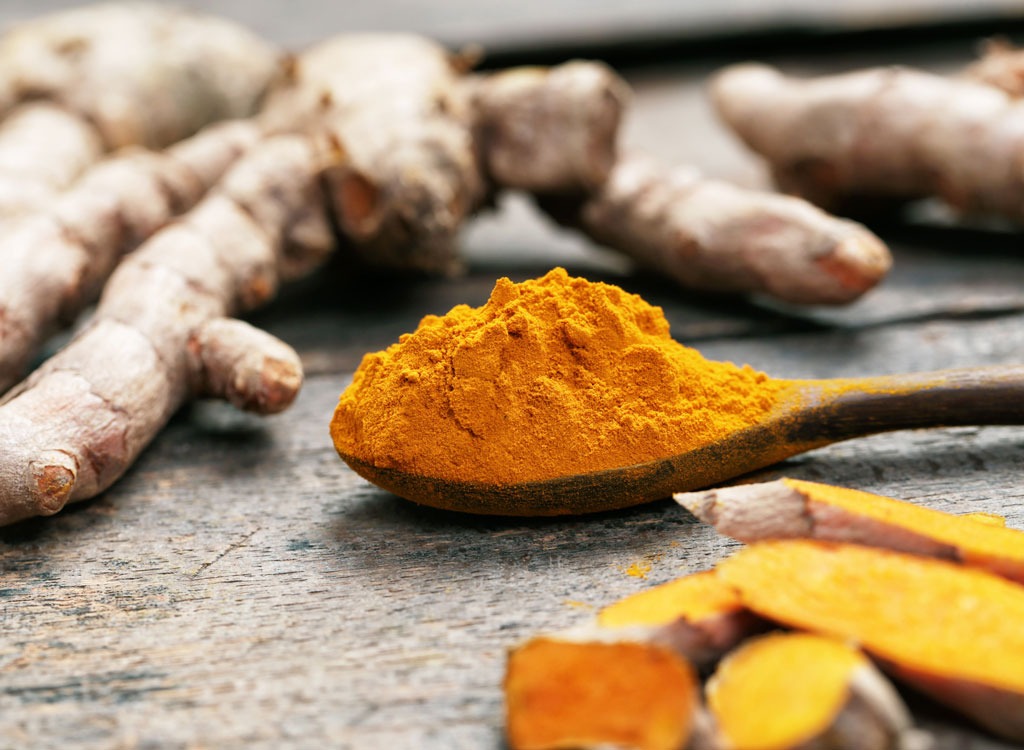
This brilliantly orange root is a powerful fat fighter. According to a 2009 study by the USDA, mice whose diets were supplemented with turmeric experienced reduced weight gain and body fat levels even when their food intake was not changed. Experts believe the power of this spice comes from the active ingredient curcumin: Studies, including one published in the journal Journal of Traditional and Complementary Medicine, have found that curcumin is one of the most effective anti-inflammatory options out there. Because it's more difficult for your body to lose weight when you're fighting off inflammation, adding anti-inflammatory turmeric will help you achieve your weight loss goals. Talk about the ultimate in fat burning foods!
Source: https://www.eatthis.com/best-fat-burning-foods/








Tidak ada komentar:
Posting Komentar